| |
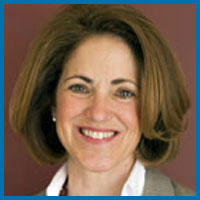 |
Cynthia Barnhart
Cynthia Barnhart is the MIT chancellor, associate dean of engineering, and professor of civil and environmental engineering and engineering systems.
Prof. Barnhart holds a PhD from MIT, which she received in 1988. Her research interests include mathematical programming models and large-scale optimization approaches for transportation and logistics systems; and service network design and operations planning for scheduled transportation systems.
Prof. Barnhart’s teaching interests have focused on the development and application of optimization models and algorithms to the design, management and operation of transportation systems. Two of her most recently taught subjects are: aviation operations research and transportation systems analysis. She has published extensively in academic and professional journals.
Prof. Barnhart is a member of the National Academy of Engineering, and has served at MIT as co-director of the Operations Research Center, as co-director of the Center for Transportation and Logistics, and as director of Transportation@MIT. |
 |
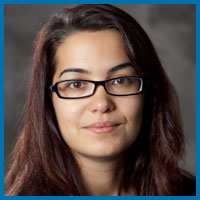 |
Burcin Becerik-Gerber
Dr. Becerik-Gerber’s research focuses on the automation of collection and analysis of the data needed for intelligent and interactive built environments, and formalization of data representation and visualization to improve built-environment efficiency, sustainability, and maintainability. Dr. Becerik-Gerber graduated from Istanbul Technical University with a Bachelor of Architecture (1999) and an M.S. in Architecture (2001). She attended the University of California at Berkeley, where she received an M.S. in Civil and Environmental Engineering (2002). She earned her Doctor of Design (2006) degree from Harvard University in the field of Project Management and Information Systems. After graduating from Harvard University, she worked as a consultant and taught in the area of information automation and management for three years. In 2008, she joined the Sonny Astani Department of Civil and Environmental Engineering at the University of Southern California as an Assistant Professor. She has authored 35 peer-reviewed journal papers and 48 peer-reviewed conference papers. Her work has received support worth over $4.7m from a variety of sources, including National Science Foundation, Department of Energy and Department of Transportation. She serves as an Associate Editor for ASCE’s Journal of Computing in Civil Engineering since 2011. In 2012, MIT’s Technology Review has named her as one of the world’s top young innovators under the age of 35. She has been appointed as the inaugural holder of the Stephen Schrank Early Career Chair in Civil and Environmental Engineering. She has been selected to take part in the National Academy of Engineering's Frontiers of Engineering Education Symposium in 2011 and Frontiers in Engineering Symposium in 2013 for her innovative research and educational approaches in civil engineering. She received NSF CAREER Award in 2014. She is currently the director of the Innovation in Integrated Informatics LAB, http://i-lab.usc.edu/. She is advising eight Ph.D. students, several masters and undergraduate students in the “Informatics For Intelligent Built Environments” focus area. |
 |
 |
Erin Bell – 2014 NSF Grantee
Erin Bell is an associate professor of civil engineering. She works to develop the tools needed to monitor the “health” of bridges. Her work includes using information collected through structural health monitoring and intelligent transportation systems to create a model-updating program for highway bridge decision-making and management.
The Living Bridge: The Future of Smart, Sustainble, User-Centered Transportation Infrastructure
Erin Bell (Principal Investigator)
This project from the University of New Hampshire focuses on a "living bridge", which exemplifies the future of smart, sustainable, user-centered transportation infrastructure. Bridges deliver such a fundamental service to society that they are often taken for granted. The Living Bridge project will create a self-diagnosing, self-reporting "smart bridge" powered by a local renewable energy source, tidal energy, by transforming the landmark Memorial Bridge--a vertical lift bridge over the tidal Piscataqua River, with pedestrian access connecting Portsmouth, New Hampshire to Kittery, Maine--into a living laboratory for researchers, engineers, scientists, and the community at large. The Living Bridge will engage innovators in sensor and renewable energy technology by creating an incubator platform on a working bridge, from which researchers can field test and evaluate the impact and effectiveness of emerging technologies. The Living Bridge will also serve as a community platform to educate citizens about innovations occurring at the site and in the region, and about how incorporating renewable energy into bridge design can lead to a sustainable transportation infrastructure with impact far beyond the region. |
 |
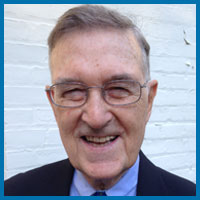 |
Dan Berg
After an industrial career at Westinghouse Electric where he became technical director, he switched careers as dean then provost at Carnegie-Mellon University. He then became provost at Rensselaer Polytechnic Institute (RPI) and Institute Professor. He is now an active emeritus professor at RPI but also active as a distinguished research professor of engineering at the University of Miami. He is the American editor of the International Journal of Services Technology and Management.
|
 |
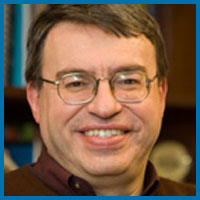 |
Dimitris Bertsimas
Dimitris Bertsimas is the Boeing Leaders for Global Operations Professor of Management, a professor of operations research, and co-director of the Operations Research Center at MIT.
A faculty member since 1988, his research interests include optimization, stochastic systems, machine learning, and their application. In recent years, he has worked in robust optimization, statistics, healthcare, and finance. Prof. Bertsimas was a co-founder of Dynamic Ideas, LLC, which developed portfolio management tools for asset management. In 2002, the assets of Dynamic Ideas were sold to American Express. He is also the founder of Dynamic Ideas Press, a publisher of scientific books.
Bertsimas has co-authored more than 150 scientific papers and the following books: Introduction to Linear Optimization (with J. Tsitsiklis, Athena Scientific and Dynamic Ideas, 2008); Data, Models, and Decisions (with R. Freund, Dynamic Ideas, 2004); and Optimization over Integers (with R. Weismantel, Dynamic Ideas, 2005). He is currently department editor of Optimization for Management Science and former area editor of Operations Research in Financial Engineering. Bertsimas has supervised 53 doctoral students and is now supervising 12 others. A member of the National Academy of Engineering, he has received numerous research awards, including the Farkas Prize (2008), the Erlang Prize (1996), the SIAM Prize in Optimization (1996), the Bodossaki Prize (1998), and the Presidential Young Investigator Award (1991–1996).
Prof. Bertsimas holds a BS in electrical engineering and computer science from the National Technical University of Athens, Greece, as well as an MS in operations research and a PhD in applied mathematics and operations research from MIT. |
 |
 |
Azer Bestavros – 2014 NSF Grantee
Azer Bestavros (project lead) brings in computer science expertise in cloud computing, network and system security, real-time systems, embedded video sensor networks, and mechanism design. Bestavros is professor and former chair of the Computer Science Department at Boston University. He is the founding director of the BU Hariri Institute for Computing, which was set up to “create and sustain a community of scholars who believe in the transformative potential of computational perspectives in research and education.” His research in the broad areas of networking and distributed systems include pioneering the web push content distribution model, seminal work on Internet traffic analysis, game-theoretic approaches to cloud resource management, and safety certification of networked systems and software. He served as chair of the IEEE Computer Society TC on the Internet and as chair or member of the editorial boards of major computer systems and networking conferences and journals. Currently, he serves as a member of the Research, Education, and Outreach Committee of the MGHPCC, and as a board member of the Cloud Computing Caucus, a nonprofit, nonpartisan coalition of industry and key government stakeholders.
A Smart-city Cloud-based Open Platform and Ecosystem (SCOPE)
Azer Bestavros (Principal Investigator)
This project from Boston University will research, prototype, and evaluate novel "smart-city" services for the city of Boston and for the Commonwealth of Massachusetts. The centerpiece of the project is a Smart-city Cloud-based Open Platform and Ecosystem (SCOPE), which creates a multisided marketplace for smart-city services based on the Open Cloud eXchange model, in which stakeholders compete and cooperate within the same infrastructure. By harnessing breakthroughs in cyber-physical, mobile, and cloud computing technologies, and by building upon novel data acquisition and mining capabilities to be developed by the investigators and their industrial partners, SCOPE-enabled smart-city services will address challenges faced by twenty-first century cities: connecting people with resources, guiding changes in collective behavior, and supporting innovative transportation, healthcare, energy distribution, and emergency response solutions, as well as business, commerce, and social applications. |
 |
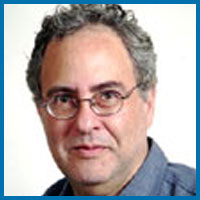 |
Michael Bobker
Energy engineer Michael Bobker is a senior fellow at the CUNY Institute for Urban Systems (CIUS) and directs the CUNY Building Performance Lab, a permanent focal center for the study and practice of enhanced building performance. Bobker comes to this activity from a background of twenty five years of work in NYC buildings and energy management organizations, with experience in building equipment evaluation, energy analysis, engineering and construction management, technology application, and technician training. |
 |
 |
John Carroll
John Carroll is a distinguished professor and co-director of the College of Information Sciences and Technology's Laboratory for Computer Supported Collaboration and Learning. He is also director of Penn State’s Center for Human-Computer Interaction. He has courtesy faculty appointments as professor of computer science and engineering, instructional systems, and psychology.
Until August 2003, Prof. Carroll was a professor in computer science at Virginia Tech. He was also director of Virginia Tech’s Center for Human-Computer Interaction, and had secondary appointments as professor of teaching and learning and psychology. Previously, he was a scientist at the IBM Thomas J. Watson Research Center (1976-1994), where he managed the legendary User Interface Institute. |
 |
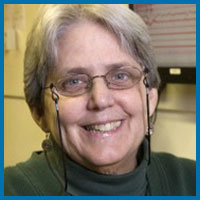 |
Mary Carskadon
Mary Carskadon is professor of psychiatry and human behavior and adjunct professor of cognitive, linguistic, and psychological sciences at Brown University. Prof. Carskadon received received a BA in psychology from Gettysburg College (1969) and doctorate with distinction in neuro and biobehavioral sciences from Stanford University (1979).
Prof. Carskadon's research includes examining associations of sleep regulatory mechanisms to sleep/wake behavior of children, adolescents, and young adults. Her findings have raised public health issues regarding consequences of insufficient sleep in adolescents and concerns about early school starting times. Current research examines genetic contributions to these processes and the association of chronic sleep restriction with development of depressed mood.
Prof. Carskadon has written many scientific papers, and she has received a number of honors, including an honorary doctor of sciences degree from Gettysburg College, Lifetime Achievement Award of the National Sleep Foundation, and Outstanding Educator and Distinguished Scientist Awards of the Sleep Research Society. She is an elected fellow of the Association for Psychological Science and fellow of the American Association for the Advancement of Science. |
 |
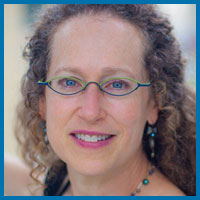 |
Justine Cassell
Justine Cassell is Associate Vice-Provost of Technology Strategy and Impact at Carnegie Mellon University, and until recently was Director of the Human Computer Interaction Institute in the School of Computer Science. She is also co-director of CMU's new Simon Initiative on Technology-Enhanced Learning, and co-director of the $10M Yahoo-CMU collaboration called InMind. Cassell was faculty at Northwestern University from 2003 to 2010 where she was the founding director of the Center for Technology and Social Behavior and the joint PhD in Technology and Social Behavior. Before that she was a tenured professor at the MIT Media Lab. Cassell received the Edgerton Prize at MIT, is an ACM and CRA Distinguished Lecturer, was honored in 2008 with the "Women of Vision" award from the Anita Borg Institute, in 2011 was named to the World Economic Forum Global Agenda Council on Robotics and Smart Devices (which she chaired from 2011-2014), and in 2012 was named a fellow of the AAAS. Cassell has spoken at the World Economic Forum in Davos on the topic of smart machines in 2012, 2013, and 2014. |
 |
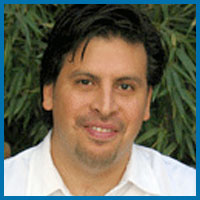 |
Alberto Cerpa – 2014 NSF Grantee
Alberto Cerpa is an Associate Professor and was one of the three founding faculties of the Electrical Engineering and Computer Science program in the School of Engineering at UC Merced when he joined in 2005. He received a Ph.D. degree in Computer Science from UCLA (2005), working under the supervision of Deborah Estrin. He also received a M.Sc. in Computer Science from USC (2000) under guidance of Deborah Estrin, and a M.Sc. in Electrical Engineering from USC (1998) under guidance of Victor O. K. Li. Alberto received his undergraduate degree (Engineer) in Electrical Engineering from Buenos Aires Institute of Technology, in Buenos Aires, Argentina (1995), working under supervision of Osvaldo Micheloud. While in graduate school, he worked as a protocol design consultant (together with Jeremy Elson) for Akamai and NetApp (Peter Danzig), as well as Sun Research Labs (Charles Perkins) and Xerox (Cheryl Bhence). Back in Buenos Aires, he worked for Startel S.A., the company that deployed the first Internet nodes in Argentina (1995-1996), and the telecommunication company Alcatel-France (1994-1995). His interests lie broadly in the computer networking and distributed systems areas, with recent focus in systems research in wireless sensor networks. Alberto is a recipient of the NSF CAREER Award (2013). Several of his papers are some of the top cited papers in top journals, including ACM TMC (2nd out of 1535), ACM SIGCOMM CCR (32 out of 2472), and JPDC (59 out of 2867). He is a member of the ACM and IEEE.
A Critical Link to Enable Smart Control of Building Infrastructure in a Complex Service System
Alberto Cerpa (Principal Investigator)
This project from the University of California, Merced focuses on the development of a crowd-based temperature control system to manage both building energy expenses and building occupant comfort effectively and efficiently by adapting university-created technology to real business applications. Americans spend 90% of their time inside buildings. Buildings accounted for near 40% of U.S. energy consumption in 2011, 75% of which was electrical energy. The energy expenditure in the building market is huge: in 2011, more than $431B was spent on energy. The climate-change footprint of buildings is correspondingly large, and the energy performance of buildings is poor, as measured by occupant comfort surveys. Though reducing energy consumption is a strategic national policy issue, comfort should not be overlooked, and the relationship between comfort and energy use must be taken into account. This project relies on a crowd-based control system for gathering occupant comfort data and managing building systems. |
 |
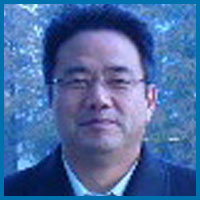 |
Zhiqing Cheng
Dr. Zhiqing Cheng is the director of Biosignature Department of Infoscitex (IST) Corporation (a DCS company), leading a group of scientists and engineers to provide technical services to the Air Force Research Laboratory (AFRL). He has vast research experience in the areas of human modeling and simulation, artificial intelligence and machine learning, computer vision, and optimization. He has assumed many R&D projects as the principal investigator or as a major investigator and has published over 80 technical papers as the lead author. Currently, as the principal investigator and program manager, he is leading IST’s HMASINT (Human Measurement and Signature Intelligence) program, a large multi-disciplinary R&D endeavor funded by the AFRL, to develop technologies for human identification, activity recognition, and human bio-signature discovery and exploitation. |
 |
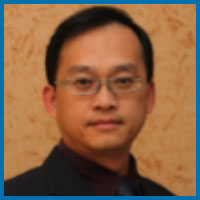 |
Yi-Chang Chiu
Prof. Yi-Chang Chiu is currently the managing faculty of Dynamic Urban Systems for Transportation (DynusT) Laboratory at the University of Arizona, managing more than $500k annual research projects all through competitive research programs such as the Transportation Research Board Strategic Highway Research Program 2 (TRB SHRP2), Federal Highway Administration Exploratory Advanced Research Program (FHWA EAR), and the National Science Foundation (NSF). He is also the associate professor at the Department of Civil Engineering and Engineering Mechanics at the University of Arizona (UA). Prior to joining UA in 2006, he served as an assistant professor at the University of Texas at El Paso (UTEP), and as a senior technical staff member at Nortel Networks Inc. in Richardson, Texas.
Prof. Chiu's research activities include theoretical development and applications of dynamic traffic simulation and assignment models in regional and corridor analysis, multi-resolution simulation assignment theories and applications, large-scale emergency evacuation modeling, system dynamics and interdependence modeling, and intelligent transportation system modeling.
Prof. Chiu is also the founder of Metropia inc which licenses his active transportation demand management patent (US 8744734) to provide future smart transportation service networks by incentivizing commuters making smart travel decisions, and stakeholders forming a Metropia Mobility Ecosystem to cost-effectively alleviate future urban congestion.
Prof. Chiu has delivered more than 100 presentations and technical publications to national/international conferences and refereed journals such as ASCE Journal of Urban Planning and Development, Journal of Transportation Research Board, IIE Transactions, Transportation Science, and Journal of Infrastructure Systems. He is also the associate editor of the International Journal of Transportation Science and Technology, and editorial board member for the ASCE Journal of Urban Planning and Development. |
 |
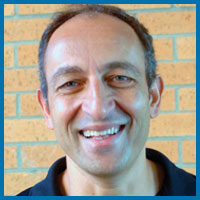 |
Munther A. Dahleh
Munther Dahleh is the acting director of the MIT Engineering Systems Division (ESD), interim director of MIT Laboratory for Information and Decision Systems (LIDS), and the William A. Coolidge Professor of Electrical Engineering and Computer Science.
Prof. Dahleh joined LIDS as an assistant professor of EECS in 1987 and became a full professor in 1998. He spent the spring of 1993 as a visiting professor in the Department of Electrical Engineering, California Institute of Technology, and has held consulting positions with several companies in the U.S. and abroad.
Prof. Dahleh is internationally known for his fundamental contributions to robust control theory, computational methods for controller design, the interplay between information and control, the fundamental limits of learning and decision in networked systems, and the detection and mitigation of systemic risk in interconnected and networked systems. In particular, his research interests include:
Networked Systems: Foundational theory for the interaction between physical and information networks, Information propagation, distributed decisions, learning network structure from data.
Social Networks: Information cascades in stochastic networks, opinion dynamics, global games in modeling outcomes of crises
Systemic Risk: The development of a foundational theory for the early detection and control of systemic risk resulting from idiosyncratic disturbance affecting components of a networked system.
- Transportation Systems: Dynamic models of congestion under disruptions, dependence of fragility on network topology, cascaded failures, value of side information on performance
- Financial Systems: Bubble formations, runs, risk analysis of networks heterogeneous financial institutions.
The Future Electric Grid: Renewable generation, real-time demand response, impact of storage, market volatility, risk analysis, outages, and market architecture. |
 |
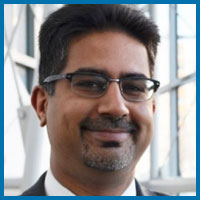 |
Kapil R. Dandekar – 2014 NSF Grantee
Kapil R. Dandekar received the B.S. degree in electrical engineering from the University of Virginia in 1997. He received the M.S. and Ph.D. degrees in Electrical and Computer Engineering from the University of Texas at Austin in 1998 and 2001, respectively. In 1992, he worked at the U.S. Naval Observatory and from 1993-1997, he worked at the U.S. Naval Research Laboratory. In 2001, Dandekar joined the Electrical and Computer Engineering Department at Drexel University in Philadelphia, Pennsylvania. He is currently a Professor in Electrical and Computer Engineering at Drexel University; the Director of the Drexel Wireless Systems Laboratory (DWSL); Associate Dean for Research in the Drexel University College of Engineering. Dandekar’s current research interests and publications involve wireless, ultrasonic, and optical communications, reconfigurable antennas, and smart textiles.
Wearable Smart Textiles Based on Programmable and Automated Knitting Technology for Biomedical and Sensor Actuation Applications
Kapil Dandekar (Principal Investigator)
Many medical conditions would benefit from continuous patient monitoring and treatment, although this is currently impractical due to the cumbersome nature of current medical equipment. Recent advancements in specialized materials and fabrication technologies offer exciting opportunities to create seamless garments as sensors and actuators for biomedical applications. Knitting fabrication, an ancient form of textile production, has gained a great deal of attention in the field of wearable electronics and could become a widespread method of construction for smart textiles in the future. In this project from Drexel University, the aim is to replace current bulky medical monitoring devices with a line of lightweight smart garments. The fiber content of these garments will be similar to those commonly used in active wear such as wicking polyester to insure breathability and comfort, while the actuators and sensors, made of smart materials, will be strategically placed in the clothing to provide unobtrusive sensing and treatment options that are not currently possible. |
 |
 |
Sajal K. Das
Dr. Sajal K. Das is the Chair of Computer Science and the Daniel St. Clair Endowed Chair at the Missouri University of Science and Technology, Rolla. During 2008-2011, he was a Program Director at NSF CISE/CNS program and during 1999-2013 he was a University Distinguished Scholar Professor of Computer Science and Engineering at the University of Texas at Arlington. His research interests include smart environments and cyber-physical systems, smart healthcare and smart energy, wireless and sensor networks, mobile and pervasive computing, security and privacy, biological and social networks, applied graph theory and game theory. He has contributed significantly to these areas and published over 500 research articles, and holds 5 US patents. he coauthored three books – "Smart Environments: Technology, Protocols, and Applications," "Handbook on Securing Cyber-Physical Critical Infrastructure: Foundations and Challenges," and "Mobile Agents in Distributed Computing and Networking." He is a recipient of the IEEE Computer Society’s Technical Achievement Award for pioneering contributions in sensor networks and mobile computing, IEEE Region-5 Outstanding Engineering Educator Award, and nine Best Paper Awards. He is also a recipient of the Graduate Dean's Award for Excellence in Mentoring Doctoral Students, Lockheed Martin Award for Teaching Excellence, College of Engineering Research Excellence Award, and the University Award for Distinguished Record of Research. Dr. Das is the founding Editor-in-Chief of Elsevier’s Pervasive and Mobile Computing journal, and Associate Editor of IEEE Transactions on Mobile Computing, ACM Transactions on Sensor Networks, Journal of Parallel and Distributed Computing, and Journal of Peer-to-Peer Networks and Applications. |
 |
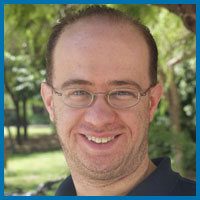 |
Hasan Davulcu – 2014 NSF Grantee
Hasan Davulcu is an Associate Professor at Arizona State University. He has done research in data mining and information assurance. His previous works in data and services integration were published at prestigious ACM and IEEE conferences. Prior to joining ASU, US DOD's Defense Logistics Agency (DLA) funded his work in industry. The intelligent agent product that he developed, while at a software startup, was the recipient of a Long Island Software Achievement Award. Dr. Davulcu's research to improve situation-awareness, security and adaptability of service-oriented architectures has been funded by National Science Foundation (NSF) prestigious early CAREER award and the Office of Naval Research (ONR) MURI award. He is currently the PI for an NSF Partnership for Innovation : Building Innovation Capacity (PFI:BIC) grant “Fraud Detection via Visual Analytics: An Infrastructure to Support Complex Financial Patterns (CFP)-based Real-Time Services Delivery” in which he collaborates with his industrial partner Early Warning Services LLC, to develop a platform to enable integration and enrichment of limited private financial data with larger publicly available data sets to detect fraud and reduce losses due to fraudulent transactions. His recent research in socio-cultural modeling and analysis is funded by a US Department of Defense (DOD) Minerva Award. You can find more information about his research and an up-to-date resume at http://www.public.asu.edu/~hdavulcu/.
An Infrastructure to Support Complex Financial Patterns (CFP)-based Real-Time Services Delivery
Hasan Davulcu (Principal Investigator)
This project from Arizona State University focuses on building a platform that will integrate data from multiple sources and explore data analysis techniques that can more accurately detect indications of financial fraud. According to Federal Trade Commission's (FTC) annual "Consumer Sentinel Network Data Book", American consumers submitted more than 1.5 million complaints - a 62 percent increase in just three years, and they reported losing over $1.6 billion to fraud in 2013. The proposed platform will enable integration and enrichment of limited private financial data with larger publicly available data sets to detect fraud and reduce losses due to fraudulent transactions. |
 |
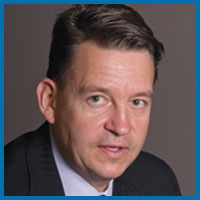 |
Olivier de Weck
Olivier de Weck is an associate professor of aeronautics and astronautics and engineering systems, co-director of the Center for Complex Engineering Systems (CCES), and secretary and treasurer for the Council of Engineering Systems Universities (CESUN). Prof. deWeck was born in Switzerland and holds degrees in industrial engineering from ETH Zurich (1993) and aerospace systems engineering from MIT (2001). Before joining MIT he was a liaison engineer and later engineering program manager on the F/A-18 aircraft program at McDonnell Douglas (1993-1997).
Prof. de Weck is a leader in systems engineering research. He focuses on how complex man-made systems such as aircraft, spacecraft, automobiles, printers, and critical infrastructures are designed and how they evolve over time. His main emphasis is on strategic properties that have the potential to maximize lifecycle value (the "iIities"). Since 2001 his group has developed novel quantitative methods and tools that explicitly consider manufacturability, flexibility, commonality, and sustainability among other characteristics. Significant results include the Adaptive Weighted Sum (AWS) method for resolving tradeoffs amongst multiple objectives, Time-Expanded Decision Networks (TDN), the Delta-Design Structure Matrix (DDSM) for technology infusion analysis, and the SpaceNet and CityNet simulation environment. These methods have impacted complex systems in space exploration (NASA, JPL), oil and gas exploration (BP) as well as in sophisticated electro-mechanical products (e.g., Xerox, Pratt & Whitney, DARPA).
Prof. de Weck’s teaching emphasizes excellence, innovation, and the bridging of theory and practice. He is an associate fellow of AIAA, a fellow of INCOSE, and serves as associate editor for the Journal of Spacecraft and Rockets and the Journal of Mechanical Design. He won the 2006 Frank E. Perkins Award for Excellence in Graduate Advising, a 2007 AIAA Outstanding Service Award, the 2008 and 2011 best paper awards from the journal Systems Engineering and the 2010 Capers and Marion MacDonald Award for Excellence in Mentoring and Advising. From 2008-2011 he served as associate head of the Engineering Systems Division (ESD) at MIT. Since early 2011 he has served as executive director of the MIT Production in the Innovation Economy (PIE) initiative.
“MIT really is a systems-thinking place,” he says. “Yes, you need to understand the scientific principles but you also need to consider real world environments and impact. That is really in the DNA of MIT.” |
 |
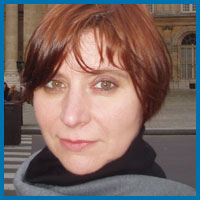 |
Geneviève Dion
Geneviève Dion is an award-winning designer with extensive background in bespoke clothing and industrial design. She is currently Assistant Professor of Fashion Design at Drexel's College of Media Arts and Design and Director of the Shima Seiki Haute Tech Lab at ExCITe. She holds a Masters of Industrial Design (MID) from the University of the Arts in Philadelphia. Dion's research focuses on the investigation of flexible production methods and mass customization of smart garments and the development of seamlessly integrated knitted electronic components into "Garment Devices." Earlier this year, Dion was named Fast Company's Top 100 Most Creative People in Business 2014. More recently she was appointed as "Innovation Ambassador" to the 2014 United Nations World Summit on Innovation and Entrepreneurship. |
 |
 |
Vincent Duffy
Vincent Duffy is an associate professor of industrial engineering and agricultural & biological engineering at Purdue University. His research in perception-based empirical model development in virtual and real environments has contributed to safety design. Some of the research led to the development of a test bed that had virtual reality integrated with live motion capture and computer-based ergonomics analysis capabilities. The work was supported by over $12 million in software grants from UGS-PLM Solutions for research and teaching that enabled real-time product design assessments for people with limited mobility. One virtual interactive product evaluation in 2004 was the first to demonstrate a methodology suitable for both virtual and real industrial environments. His work has also shown how thermography can be used as a non-intrusive indicator of change in mental workload in driving. Prof. Duffy was previously a faculty member at The Hong Kong University of Science and Technology and Mississippi State University. He received his PhD and MSIE degrees from Purdue University. |
 |
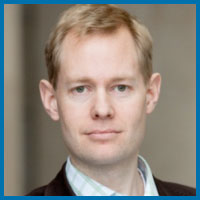 |
David Erickson – 2014 NSF Grantee
Dr. David Erickson is a professor in the Sibley School of Mechanical and Aerospace Engineering at Cornell University. His research focuses on: mobile and global health technology, microfluidics, photonics, and nanotechnology. Prior to joining Cornell, he was a postdoctoral scholar at CalTech and he received his Ph.D. degree from the University of Toronto. Research in the Erickson lab is primarily funded through grants from the NSF, NIH, ARPA-E, ONR, DOE and DARPA. Prof. Erickson has co-founded three start-up companies including Optofluidics, Inc. which is commercializing high-throughput nanoparticle analysis systems and was named Philadelphia life-sciences start-up of the year in 2012. In recent years, Dr. Erickson has received the DARPA-MTO Young Faculty Award, the NSF CAREER Award, and the Department of Energy Early Career Award. In 2011 he was awarded the Presidential Early Career Award for Scientist and Engineers (PECASE) by President Obama. For his efforts in co-founding the field of Optofluidics, Erickson was named a fellow of the Optical Society of America.
Nutriphone: A Nanoparticle-based Optical Contrast Assay to Monitor Vitamin and Micro-nutrient Levels Using Smartphones
David Erickson (Principal Investigator)
This project from Cornell University aims to develop a simple, cost-effective technology to obtain personal micronutritional status using a smartphone. This system would allow users to accurately track their nutritional status directly rather than relying on guesses based on diet. The "NutriPhone" system is comprised of a hardware accessory that attaches to a smartphone, custom test strips that accept a blood sample and conduct a detection assay, and a software app. The app operates the smartphone, interprets the test strip results, displays the results to the user in an intuitive fashion, and provides therapeutic suggestions, if needed. The personalized self-report and automated data streams are expected to yield greater awareness and self-management of health and diet. |
 |
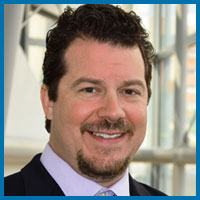 |
Adam Fontecchio
Dr. Adam Fontecchio is a Professor in the Electrical and Computer Engineering Department at Drexel University and is Associate Dean for Academic Affairs for the College of Engineering, Co-Director of the A. J. Drexel Nanotechnology Institute, an affiliated member of the Materials Engineering Department, and cuurently serves as Vice-Chair of the IEEE Philadelphia Section. His research focuses on the area of nanophotonics. He has served as PI or Co-PI on >$15M in sponsored research funding, and authored >80 peer-reviewed papers. He is the recipient of a NASA New Investigator Award, the Drexel Graduate Student Association Outstanding Mentor Award, the Drexel University ECE Outstanding Research Achievement Award and the International Liquid Crystal Society Multimedia Prize. In 2003, he received a NASA/ASEE Summer Faculty Fellowship to research NEMS/MEMS adaptive optics in the Microdevices Laboratory at the Jet Propulsion Laboratory. Dr. Fontecchio received his BA, MSc., and Ph.D. in physics from Brown University. |
 |
 |
Wolfgang Fink – 2014 NSF Grantee
Associate Professor Dr. Wolfgang Fink is the inaugural Edward & Maria Keonjian Endowed Chair of Microelectronics with joint appointments in the Departments of Electrical & Computer Engineering, Biomedical Engineering, Systems & Industrial Engineering, Aerospace & Mechanical Engineering, and Ophthalmology & Vision Science at the University of Arizona in Tucson. He is a Visiting Associate in Physics at the California Institute of Technology, and holds concurrent appointments as Visiting Research Associate Professor of Ophthalmology and Neurological Surgery at the University of Southern California. Dr. Fink is the founder and director of the Visual and Autonomous Exploration Systems Research Laboratory at Caltech and at the University of Arizona. He was a Senior Researcher at NASA’s Jet Propulsion Laboratory from 2000 till 2009. He obtained a B.S. and M.S. degree in Physics and Physical Chemistry from the University of Göttingen, Germany, and a Ph.D. in Theoretical Physics from the University of Tübingen, Germany in 1997.
Dr. Fink, pursuing an inter-disciplinary systems engineering approach in human-machine interfaces, evolutionary optimization, and autonomous/reasoning systems, has focused his research on biomimetic (implantable) systems, biomedical sensor development, artificial vision, computer-optimized design, cognitive systems, and autonomous robotic space exploration. Throughout his tenure at JPL and Caltech Dr. Fink received 6 NASA Patent Awards. In July 2009, Dr. Fink was named co-recipient of the R&D Magazine’s R&D 100 Award and subsequently in November 2009 he was also named co-recipient of the R&D Magazine’s R&D 100 Editors’ Choice Award (the highest of the R&D 100 Awards in 2009), both for the DOE-funded Artificial Retina Project. Furthermore, in November 2009 he received the NASA Board Award for his pioneering work on a novel autonomous space exploration paradigm. Dr. Fink has over 180 publications (including journal, book, and conference contributions) as well as 13 patents awarded to date in the areas of autonomous systems, biomedical devices, MEMS fabrication, and multi-dimensional optimization. In 2012 Dr. Fink was inducted to the College of Fellows of the American Institute for Medical and Biological Engineering (AIMBE). Dr. Fink holds a Commercial Pilots License for Rotorcraft.
Making Full Use of the High-Resolution Image Capability of Smartphones to Collect Data through Ophthalmic Devices for Smart Mobile- and Tele-Health
Wolfgang Fink (Principal Investigator)
This project from the University of Arizona is designed to extend healthcare to remote patients suffering from eye diseases. The field of mobile health (M-Health) merges mobile technology and healthcare. Its purpose is to extend the reach of healthcare services to people living in rural, remote, or isolated areas who do not have routine access to healthcare. Ocular trauma, glaucoma, and macular degeneration are all significant causes of preventable vision loss, if detected and treated early. A series of devices is proposed which act as medical examination extensions to a smartphone. A visiting healthcare practitioner attaches such a device to a smartphone and runs a custom app to perform a specialized examination of specific portions of the eye. Using a WiFi or cell signal, the smartphone app submits the collected examination data to a remote "expert system," which provides in-depth medical analysis processing. The analysis results are sent back almost immediately and are displayed onscreen to the healthcare practitioner. Through this process of telediagnosis, the project offers the potential of greatly improving remote patient screening and triage. It will help to ensure that patients with undiagnosed eye diseases are detected early and can arrange to visit an ophthalmologist in time to prevent permanent eye damage. |
 |
 |
Tat Fu
Tat Fu is an assistant professor in the Department of Civil Engineering at the University of New Hampshire. His research interests include civil engineering, electrical engineering, architecture, and multidisciplinary research. Prof. Fu received his PhD in civil and environmental engineering, MBS in architecture, MS in both electrical engineering and civil and environmental engineering, and BS in civil and environmental engineering all from the University of Southern California. |
 |
 |
Geri Gay
Kenneth J. Bissett Professor and Chair of Communication, Cornell University
Dr. Geri Gay is the Kenneth J. Bissett Professor and Chair of Communication at Cornell University and a Stephen H. Weiss Presidential Fellow. She is also a professor in Information Science and the director of the Interaction Design Lab at Cornell. Her research focuses on social and technical issues in the design and application of interactive communication technologies. Specifically, she is interested in social navigation, persuasive computing, affective computing, social networking, mobile computing, and design theory. Currently, she receives funding from the National Science Foundation (NSF), Google, National Institute of Health, USDA and private donors. |
 |
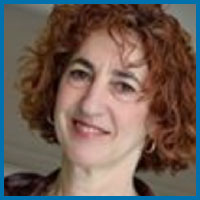 |
Linda Grosser
Linda Grosser is director for program and project development at the BU Hariri Institute for Computing, assisting with strategic planning, corporate relations, research development and management, communications, and general administration. Previously, Linda helped launch and served as associate director, for both BU’s Center for Information & Systems Engineering, an interdisciplinary research center focusing on complex systems, and the BU Sustainable Neighborhood Lab, a multi-stakeholder interdisciplinary research and education initiative on urban sustainability and smart cities. At IBM, Linda worked in client marketing and technical support for the insurance, manufacturing, and federal government sectors. Linda holds a BA in Mathematics from Case Western Reserve University and an MBA from Boston University’s School of Management. |
 |
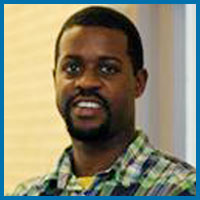 |
Robert C. Hampshire
Robert C. Hampshire is an assistant research professor in UMTRI's Human Factors group. He was previously an assistant professor of Operations Research and Public Policy at the H. John Heinz III College at Carnegie Mellon University. He received a PhD in Operations Research and Financial Engineering from Princeton University in 2007. His research focuses on management, modeling, and optimization of services. His work considers mobility services such as smart parking, connected vehicles, ride sharing, bike sharing, car sharing and person-2-person car sharing. This work is supported by the National Science Foundation, Department of Transportation and several nonprofit foundations. He uses stochastic modeling, simulation and dynamic optimization to develop design and management strategies. More specifically, his methodological interests are: dynamic control of transient stochastic systems, queueing networks with time-varying rates, and asymptotic approximations (strong approximations). |
 |
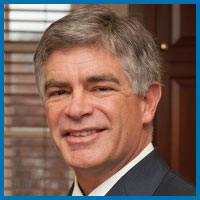 |
Patrick T. Harker
Patrick T. Harker became the 26th president of the University of Delaware in July 2007. Concurrent with his appointment as president, Dr. Harker is a professor of Business Administration in the Alfred Lerner College of Business and Economics and a professor of Civil and Environmental Engineering in UD’s College of Engineering.
In May 2008, Dr. Harker unveiled a sweeping strategic plan, UD’s Path to Prominence, predicated on excellence in undergraduate, graduate and professional education, environmental leadership, global engagement and service to the community. He has established numerous research centers, as well as the Office of Economic Innovation and Partnerships, which stimulates invention and entrepreneurship and translates UD research into economy-driving technologies. To establish Delaware as a health sciences hub, UD has partnered with the region’s leading health care providers in the Delaware Health Sciences Alliance.
In February 2000, Dr. Harker was appointed dean of the Wharton School and Reliance Professor of Management and Private Enterprise. He was a senior fellow at the Wharton Financial Institutions Center and held a secondary appointment as a professor of Electrical and Systems Engineering at Penn. Previously, Dr. Harker was chair of Wharton’s Operations and Information Management Department.
Dr. Harker is a member of the board of directors of Pepco Holdings Inc. and Huntsman Corporation, and a founding member of the board of advisors of Decision Lens Inc. He previously served as a trustee of the Goldman Sachs Trust and Goldman Sachs Variable Insurance Trust.
Dr. Harker is a Class B director of the Federal Reserve Bank of Philadelphia and a member of the Homeland Security Academic Advisory Council. He serves on the boards of Christiana Care Health Systems, First State Innovation, Catholic Relief Services and Easter Seals of Delaware. He is a member of the Regional Leadership Initiative Steering Committee at the Council on Competitiveness and a member of the CEO Council for Growth at the Greater Philadelphia Chamber of Commerce.
Dr. Harker received his B.S.E. and M.S.E. in Civil Engineering in 1981, an M.A. in Economics in 1983 and a Ph.D. in Civil and Urban Engineering in 1983, all from the University of Pennsylvania.
When he was named UPS Transportation Professor of the Private Sector in 1991, Dr. Harker became the youngest faculty member in Wharton’s history awarded an endowed professorship. Dr. Harker has published or edited nine books and more than 100 professional articles. From 1996–99, he served as editor-in-chief of the premier journal Operations Research.
President George H.W. Bush named Dr. Harker a White House Fellow in 1991, and he served from 1991–92 as a special assistant to FBI Director William S. Sessions. Dr. Harker was named a Fellow of the Institute for Operations Research and the Management Sciences (INFORMS) in October 2012, and a Charter Fellow of the National Academy of Inventors in December 2012.
Dr. Harker is married to the former Emily Grace Saaty and is the father of three children. |
 |
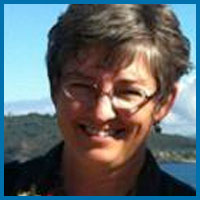 |
Nicolene Hengen
Nicolene Hengen is the assistant director for strategy in the Sociotechnical Systems Research Center (SSRC). She is also a lecturer at the Sloan School of Management, where she is affiliated with the Healthcare Action Learning Lab. In SSRC she works with faculty leadership, senior administrators, and external stakeholders on program management, strengthening and diversifying SSRC's research base, widening SSRC’s intellectual community, and communicating research findings. From 2010-2013 she served as the managing editor for the international Journal of Enterprise Transformation and represented MIT in the 2012-2013 Susan Vogt Leadership Fellows Program sponsored by The Boston Consortium.
Nicolene has more than 25 years of professional experience in leadership, strategic communications, membership development, and donor stewardship with a variety of international and U.S.-based educational, public health, and nonprofit institutions. She is the founder and past president of Roslindale Green & Clean, a national award-winning nonprofit organization that works with the City of Boston and community partners on neglected public spaces in Boston. She serves on the advisory board of COGdesign, is a member of the Roslindale Public Library’s steering committee, and was a member of LeadBoston’s class of 2007. Nicolene holds a bachelor's in government from Smith College and a master's in public health science from the Tulane School of Public Health and Tropical Medicine. |
 |
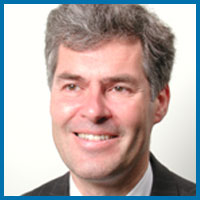 |
J.W. (Hans) Hofstraat
Hans Hofstraat completed his thesis (Free University, Amsterdam; awarded by Royal Dutch Shell prize) and post-doctoral work (Eidgenössische Technische Hochschule, Zürich, Switzerland) on low-temperature high-resolution luminescence spectroscopy. Subsequently he turned to marine environmental research, in the laboratory of the Dutch Public Works Department in Rijswijk, The Netherlands. He then moved to industry, conducting research at Akzo Nobel Central Research in Arnhem, the Netherlands. From 1998-2008 he was part-time professor in the Institute of Molecular Chemistry at the University of Amsterdam. In 1998 he was appointed department head at Philips Research, Eindhoven (the Netherlands). In 2003 he was appointed Vice President Philips Research. In 2005 he became Sector Head Molecular Medicine in Philips Research Europe, and globally responsible for the Focal Area Molecular Medicine in Philips Research. Since 2007 he is responsible for Healthcare Strategic Partnerships in Philips Research worldwide, actively driving the Open Innovation approach to Philips’ Healthcare research program. Since 2009 he is member of the Healthcare Program Board within Philips Research, focusing on diverse innovation topics across and adjacent to the Philips Healthcare portfolio.
Next to his work at Philips he holds several positions in (inter)national advisory bodies. Amongst others, he is member of the Dutch Sounding Board for Horizon 2020, Theme Health, demographic change and well-being. He is Member of the Dutch Advisory Council on Health Research (RGO), Initiator and Chairman of the Advisory Board of the Center for Translational Molecular Medicine, Co-Chair of the Taskforce Roadmap Homecare and Self-Management of the Topsector Life Sciences & Health, and Theme Coordinator of the Nanomedicine program in the public-private partnership NanoNextNL.
Hofstraat authored over 190 publications with an h-index of 37 (Google Scholar). He holds 10 granted US patents, and a total of over 80 patent (application)s in various countries from 25 patent families in various fields. |
 |
 |
Abigail Horn
Abigail Horn is a doctoral candidate in MIT's Engineering Systems Division, working with Richard Larson and Stan Finkelstein. Her PhD research focuses on developing strategies to quickly and accurately identify the source of large scale, multi-state outbreaks of foodborne illness and guide investigation response. She holds a Bachelor’s degree in physics from the University of California, Santa Barbara and an Advanced Studies Degree in Bioengineering Systems from the MIT Portugal Program, which she completed during a Rotary Ambassadorial Scholarship. |
 |
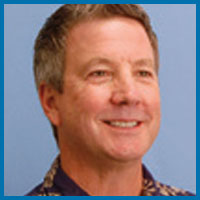 |
Andy Hospodor
Andy Hospodor has been actively engaged in the study of Big Data for the past 32 years with industrial experience ranging from a software engineer to the vice president of a Fortune 500 company. As an entrepreneur, he has participated in seven startups. Andy’s academic experience ranges from the first Fellow at the Institute for Information Storage Technology, to the Executive Director of the NSF funded Center for Research in Storage Systems (CRSS) at University of California, Santa Cruz (UCSC) where he manages a group of world-class researchers in Big Data. CRSS sponsors NetApp, EMC, HP, SanDisk, Intel, LSI/Avago, Toshiba and Permabit have donated 2PB of storage to extend our understanding of cancer as well as astrophysics. As the demand for genomic data increases, CRSS will continue to coordinate with our members for donations of big data stores for the clinical application of genomic data in the treatment of cancer.
Presently, Dr. Hospodor is engaged on a number of proposals ranging from the NSF Smart and Connected Health to the NIH Big Data to Knowledge (BD2K) program. He intends to leverage data from both public sources, such as The Cancer Genome Atlas (TCGA), and private data, such as the genome sequence data obtained from patients’ tumors. The ability to create informed, actionable knowledge from genomic data and present it to tumor boards for treatment decisions is an essential step in extending our overall knowledge of cancer.
A number of people close to Andy have been taken by cancer, including his parents. He clearly sees the study of cancer as a Big Data problem and has dedicated his life to finding better ways to organize and study genomic data. While there are many others preforming cancer research, Dr. Hospodor intends to focus upon the clinical application of genomic data to the treatment of cancer. |
 |
 |
Louise R. Howe
Louise R. Howe is a AAAS Fellow in the NSF Directorate of Engineering whilst on sabbatical from Weill Cornell Medical College, where she is an Associate Research Professor of Cell & Developmental Biology. She holds BA, MA and PhD degrees from the University of Cambridge in Natural Science (Biochemistry). Her research focuses on breast cancer, using experimental models to evaluate preventive modalities, as well as the link between obesity and cancer risk. Howe’s recent focus on obesity has prompted her to expand her horizons beyond the bench and embrace a broader public health perspective through engaging at the policy level under the aegis of the AAAS Science & Technology Policy Fellowship program. |
 |
 |
Edward Huang
Edward Huang, Ph.D., is an assistant professor in the Department of Systems Engineering and Operations Research at the George Mason University. He received his M.S. and Ph.D. degrees in Industrial & Systems Engineering from the Georgia Institute of Technology. For over ten years, Dr. Huang has focused on enabling, applying, and advancing model-based systems engineering (MBSE) to help transform the state of the systems engineering practice. His research interests include multi-fidelity model integration, model transformation, and trading mechanism for engineering design. |
 |
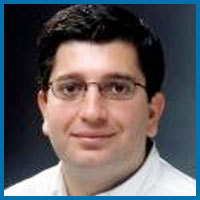 |
Ali Jadbabaie
Ali Jadbabaie is a visiting scientist in the Laboratory for Information Decision Systems (LIDS) from the University of Pennsylvania and interim director of the Sociotechnical Systems Research Center. Prof. Jadbabaie will also serve as interim associate director designate of a new organization at MIT devoted to understanding and managing complex societal and technical systems, and to new programs in 21st-century statistics. He is a recognized expert in the fields of network science, decision and control theory, and multi-agent coordination.
Through his highly-cited and influential research, Jadbabaie has made fundamental contributions in optimization-based control, multi-agent coordination and consensus, network science, and network economics. He has won several prestigious awards, and his students and postdoctoral scholars have become professors within electrical, computer, and mechanical engineering departments in top universities and in eminent business schools.
Jadbabaie received his BS from Sharif University of Technology in Tehran, his MS in electrical and computer engineering from the University of New Mexico, and his PhD in control and dynamical systems from the California Institute of Technology. He was a postdoctoral scholar at Yale University before joining the faculty at Penn, where he is the Alfred Fitler Moore Professor of Network Science in the Department of Electrical and Systems Engineering, in July 2002. He has secondary appointments in computer and information science and operations and information management in the Wharton School.
A member of the General Robotics, Automation, Sensing & Perception (GRASP) Lab at Penn, Jadbabaie is also the co-founder and director of the Raj and Neera Singh Program in Networked and Social Systems Engineering (NETS), a new undergraduate interdisciplinary degree program focused on network science and engineering, operations research, computer science, and social sciences. He is also a faculty member of the Warren Center for Network and Data Sciences at Penn and a faculty affiliate of the Center for Technology, Innovation and Competition at Penn's law school. He is a lead of a Department of Defense-funded Multidisciplinary Research Initiative (MURI) titled, “The Evolution of Cultural Norms and Dynamics of Sociopolitical Change,” which involves MIT faculty from LIDS and the departments of Political Science and Economics, as well as faculty from Penn, Stanford, and Cornell.
Jadbabaie is the inaugural editor-in-chief of IEEE Transactions on Network Science and Engineering, a new interdisciplinary journal sponsored by several IEEE societies. He is a recipient of a National Science Foundation Career Award, an Office of Naval Research Young Investigator Award, the O. Hugo Schuck Best Paper Award from the American Automatic Control Council, and the George S. Axelby Best Paper Award from the IEEE Control Systems Society. He is an IEEE fellow.
His current research interests include the interplay of dynamic systems and networks with specific emphasis on multi-agent coordination and control, distributed optimization, network science, and network economics. |
 |
 |
Roger J. Jiao
Dr. Roger J. Jiao is Associate Professor of Design Systems Engineering in the School of Mechanical Engineering at Georgia Institute of Technology, Atlanta, Georgia. Contact: http://www.me.gatech.edu/faculty/jiao
Before joining Georgia Tech, he was Assistant Professor and then Associate Professor of Systems and Engineering Management in the School of Mechanical and Production Engineering at Nanyang Technological University in Singapore. He earned his Ph.D in Industrial Engineering at Hong Kong University of Science & Technology, M.S. in Intelligent Manufacturing at Tianjin University, and B.S. in Mechanical Engineering at Tianjin University of Science & Technology in China.
His research interests include engineering design, industrial systems, service engineering, and intelligent decision making. Dr. Jiao has published 100+ journal papers, 150+ international conference papers, 20 book chapters, along with 2 edited books and 7 proceedings. More info click here. |
 |
 |
Michelle Johnson
Michelle Johnson is an assistant professor of physical medicine and rehabilitation in the Perelman School of Medicine at the University of Pennsylvania. Her research is mainly in the area of robot-mediated rehabilitation and focuses on the investigation and rehabilitation of dysfunction due to aging, neural disease, and neural injury. She is particularly interested in 1) exploring the relationships between brain plasticity and behavioral/motor control changes after robot-assisted interventions; 2) quantifying motor impairment and motor control of the upper limb in real world tasks such as drinking; and 3) defining the methods to maintain therapeutic effectiveness while administering local and remote, robot-mediated interventions.
Prof. Johnson directs the Rehabilitation Robotics Lab whose mission is to use robotics, rehabilitation, and neuroscience techniques to translate research findings into the development of assistive and therapeutic rehabilitation robots capable of functioning in real-world rehabilitation environments. The lab's goal is to improve the quality of life and function on activities of daily living (ADLs) of its target population in supervised or under-supervised settings.
Prof. Johnson received her PhD in mechanical engineering from Stanford University (2002), MS in mechanical engineering from the University of California (1994), and BS in mechanical engineering and applied mechanics from the University of Pennsylvania (1994). |
 |
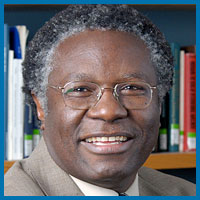 |
Calestous Juma
Professor Juma is an internationally recognized authority on the application of science and technology to sustainable development. He was named one of the most influential 100 Africans in 2012 and 2013 by the New African magazine.
Professor Juma is a Professor of the Practice of International Development at Harvard Kennedy School. He also directs the School’s Agricultural Innovation in Africa Project funded by the Bill and Melinda Gates Foundation. He is on the selection juries of the Queen Elizabeth Prize for Engineering and the Africa Engineering Innovation Prize. Professor Juma has been elected to several prestigious scientific academies including the Royal Society of London, the US National Academy of Sciences, the World Academy of Sciences, the UK Royal Academy of Engineering and the African Academy of Sciences.
Beyond engaging in research and advancing DUSP and MIT work in the area of science, technology and sustainable development (with special focus on Africa), Professor Juma will also teach two courses: In the Fall he will co-teach (with Professor Wes Harris) 11.A11 the undergraduate freshman seminar in International Development. In the Spring of 2015 Professor Juma will offer an Advanced Seminar to PhD and Master students titled: Innovation, Entrepreneurship and Development. |
 |
 |
Mihyun Kang
Mihyun Kang is an Associate Professor at Oklahoma State University. She holds a Ph.D. in interior design from the University of Minnesota; a M.A. in interior design from Iowa Sate University; and B.S. in housing and interior design from Yonsei University, Seoul, Korea. She worked at the University of California Davis before joining Oklahoma State University.
Her research focuses on sustainable interior design issues to minimize negative impacts and maximize positive effects on environmental, economic, and social systems over the life cycle of the building. She also has interests in methodological exploration and utilization to solve contemporary complex design problems for seniors. She has presented at national and international conferences and has published in several scholarly journals.
She has commercial interior design experience that includes design work in Korea, China, and U.S. She has worked at Corporate-Commercial-Institutional Interiors Group in Ellerbe Becket, Minneapolis, MN; Design Department in Iowa Department of Transportation, Ames, IA; and Department of Interior Design and Custom Furniture in Hyundai Wood Industries Co., LTD, Seoul, Korea. |
 |
| |
David Keeney
David Keeney is chief technologist at Early Warning Services LLC, a provider fraud prevention and risk management services to help fight fraud in the financial system. Early Warning facilitates the secure exchange of information and knowledge between organizations for the sole purpose of preventing fraud and offers solutions for responding quickly to evolving fraud challenges. |
 |
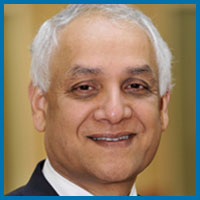 |
Pramod P. Khargonekar
Dr. Pramod P. Khargonekar was appointed by the National Science Foundation (NSF) to serve as Assistant Director for the Directorate of Engineering (ENG) in March 2013. In this position, Khargonekar leads the ENG Directorate with an annual budget of more than $800 million. The ENG Directorate invests in frontier engineering research and education, cultivates an innovation ecosystem, and develops the next-generation of engineers.
Khargonekar received B. Tech. Degree in electrical engineering from the Indian Institute of Technology, Bombay, India, in 1977, and M.S. degree in mathematics and Ph.D. degree in electrical engineering from the University of Florida in 1980 and 1981, respectively. He has held faculty positions at the University of Florida, University of Minnesota, and The University of Michigan. He was Chairman of the Department of Electrical Engineering and Computer Science from 1997 to 2001 and also held the position of Claude E. Shannon Professor of Engineering Science at The University of Michigan. From 2001 to 2009, he was Dean of the College of Engineering and is currently Eckis Professor of Electrical and Computer Engineering at the University of Florida. He also served briefly as Deputy Director of Technology at ARPA-E, U. S. Department of Energy in 2012-13.
Khargonekar’s current research and teaching interests include systems and control theory, machine learning, and applications to smart electric grid and neural engineering. He has been recognized as a Web of Science Highly Cited Researcher. He has authored more than 130 refereed journal publications and 150 conference publications. He is a recipient of the NSF Presidential Young Investigator Award, the American Automatic Control Council’s Donald Eckman Award, the Japan Society for Promotion of Science fellowships, the IEEE W. R. G. Baker Prize Award, the IEEE CSS George Axelby Best Paper Award, the Hugo Schuck ACC Best Paper Award, and the Distinguished Alumnus and Distinguished Service Awards from the Indian Institute of Technology, Bombay. He is a Fellow of IEEE. At the University of Michigan, he received the Arthur F. Thurnau Professorship. In the past, he has served as Associate Editor for IEEE Transactions on Automatic Control, SIAM Journal of Control, Systems and Control Letters, and International J. of Robust and Nonlinear Control. He has been a member of the IEEE Control Systems Theory and Robust Control technical committees. He has also served as Chair and Member of the American Automatic Control Council’s Donald Eckman Award Committee. He has served as Program Co-Chair of the American Control Conference. |
 |
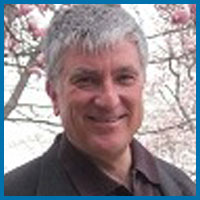 |
Triantis Konstantinos
Triantis Konstantinos is a professor of industrial and systems engineering at Virginia Tech. He has designed performance measurement systems for service and production organizations and introduced fuzzy sets as a mechanism to represent uncertainty and the concept of continuous dynamic efficiency performance in performance measurement modeling. Prof. Triantis received his PhD, MPhil, MS, and BS from Columbia University. |
 |
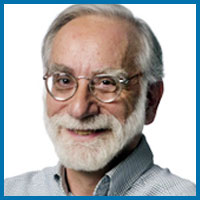 |
Robert Kraut
Robert Kraut is the Herbert A. Simon Professor of Human-Computer Interaction in the School of Computer Science at Carnegie Mellon University. He began his career as a traditional social psychologist, but working in the telecommunications industry for twelve years shifted his focus from disciplines to problems. His research interests include the design and social impact of information technologies in small groups, in the home, and in organizations. He conducts research in four major areas: online communities, everyday use of the internet, technology and conversation, collaboration in small work groups, and computers in organizations.
His research in a specific area first examines the challenges individuals, groups, and organizations face in performing social tasks. This empirical research can inform the design of new technology to meet some of these challenges. He teaches courses in these topics, including undergraduate, master's, and PhD level courses in communication, computer supported cooperative work, and organizational computing. |
 |
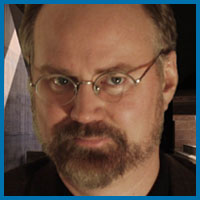 |
Kent Larson
Kent Larson directs the Media Lab's Changing Places group. Since 1998, he has also directed the MIT House_n research consortium in the School of Architecture and Planning. His current research is focused on four related areas: responsive urban housing, new urban vehicles, ubiquitous technologies, and living lab experiments. Larson practiced architecture for 15 years in New York City, with work published in Architectural Record, Progressive Architecture, Global Architecture, The New York Times, A+U, and Architectural Digest. His book, Louis I. Kahn: Unbuilt Masterworks was selected as one of the Ten Best Books in Architecture, 2000 by The New York Times Review of Books. Related work was selected by Time magazine as a "Best Design of the Year" project. |
 |
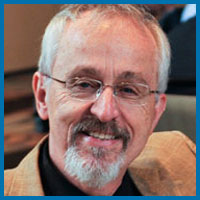 |
Richard Larson
The majority of his career has focused on operations research as applied to services industries. He is author, co-author or editor of six books and author of over 75 scientific articles, primarily in the fields of technology-enabled education, urban service systems (esp. emergency response systems), queueing, logistics and workforce planning. His first book, Urban Police Patrol Analysis (MIT Press, 1972) was awarded the Lanchester Prize of the Operations Research Society of America (ORSA). He is co-author, with Amedeo Odoni, of Urban Operations Research, Prentice Hall, 1981.
He served as President of ORSA, (1993-4), and is Past-President of INFORMS, Institute for Operations Research and the Management Sciences. He has served as consultant to the World Bank, the United Nations, Johnson Controls, EDS, United Artists Cinemas, Union Carbide Corp., Rand Corp., the Kuwait Foundation for the Advancement of Science, Predictive Networks, WebCT, Hibernia College in Ireland, Hong Kong University and the U.S. Department of Justice. With outside companies on which he serves as board member, most recently Structured Decisions Corporation, Dr. Larson has undertaken major projects with Citibank, American Airlines, Actmedia/Turner Broadcasting, the U.S. Postal Service, the City of New York, Jenny Craig, Conagra, Diebold, BOC and other firms and organizations. Dr. Larson's research on queues has not only resulted in new computational techniques (e.g., the Queue Inference Engine and the Hypercube Queueing Model), but has also been covered extensively in national media (e.g., ABC TV's 20/20). Dr. Larson has served as Co-Director of the MIT Operations Research Center (over 15 years in that post). Dr. Larson was first listed in Who's Who in America in 1982. He is a member of the National Academy of Engineering and is an INFORMS Founding Fellow. He has been honored with the INFORMS President's Award and the Kimball Medal.
From 1995 to mid 2003, Dr. Larson served as Director of MIT's CAES, Center for Advanced Educational Services. Dr. Larson's position at CAES focused on bringing technology-enabled learning to students living on the traditional campus and to those living and working far from the university, perhaps on different continents. During the years 1995 - 1999 he built the center from two to seven business units, encompassing MIT's production and R&D capabilities in educational technologies and its two major lifelong learning academic programs. His center produced the world's most ambitious point-to-point distance learning program, the Singapore MIT Alliance. He has been invited to give lectures on the future of technology-enabled education in testimony before the House Committee on Science (Washington, D.C.) and in North and South America, Asia, Africa and Europe. He has served as Principal Investigator of several of MIT's most ambitious technology-enabled learning programs, including PIVoT— the web-based the Physics Interactive Video Tutor, Masters' Voices (sponsored by the Ford Motor Company), MIT World, "Inventing the Global Classroom," "Good Clinical Practices" and "Fungal Infections" (the last two sponsored by the Pfizer Corporation). He is Founding Director of LINC, Learning International Networks Consortium, an MIT-based international project that has just held its third international symposium. Dr. Larson also served as founding co-director of the Forum the Internet and the University, a not-for-profit organization affiliated with the Forum for the Future of Higher Education. |
 |
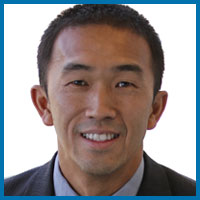 |
Kam K. Leang – 2014 NSF Grantee
Kam K. Leang received the B.S. and M.S. degrees in Mechanical Engineering from the University of Utah, Salt Lake City, Utah, in December 1997 and 1999, respectively, and the Ph.D. degree from the University of Washington, Seattle, Washington, in December 2004. He is an Associate Professor in the Mechanical Engineering Department at the University of Utah, which he joined in 2014. Between July 2008 to June 2014, he was at the University of Nevada, Reno. His research interests include: modeling and precision control of electroactive (smart) material actuators (piezoelectrics and electroactive polymers), nanopositioning and scanning probe microscopy, and more recently the design and control of aerial robots for autonomous indoor applications. His research is supported by the National Science Foundation, U.S. Department of Defense, NASA, and industry partners. In 2013, Dr. Leang was awarded a Faculty Excellence Award from the College of Engineering at the University of Nevada, Reno. In 2014, he received the Nevada Board of Regents' Rising Research Award. He currently serves as a Technical Editor for IEEE/ASME Trans. on Mechatronics and an Associate Editor for IEEE Control Systems Magazine.
Enhanced Situational Awareness Using Unmanned Autonomous Systems for Disaster Remediation
Kam Leang (Principal Investigator)
This project from the University of Nevada, Reno aims to enhance the situational awareness capabilities of law enforcement agencies and first responders by employing unmanned autonomous systems (UAS) with high-resolution sensing and imaging capabilities for disaster remediation. Law enforcement agencies and first responders face significant challenges during an emergency event, such as a natural or anthropogenic disaster. One of the major challenges is acting decisively based on available information and considering human factors, making high-quality real-time situational awareness critical to effectively manage and safeguard civilians and in- field personnel. This project focuses on creating a smart emergency-response service system using UAS, both air- and ground-based systems, equipped with state-of-the-art imaging, sensing, and communication systems to provide first response teams with high-quality, real-time information to act decisively and effectively via human-machine interactions. |
 |
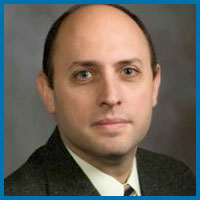 |
Alexander Leonessa
Alexander Leonessa is an associate professor of mechanical engineering at Virginia Tech and director for the General and Age Related Disabilities Program at the National Science Foundation (NSF). Prof. Leonessa, a 2011 recipient of an NSF CAREER award, has spent the past three years seeking to restore the voice of stroke patients and others who have suffered paralysis of the vocal folds.
Also, in an unforeseen extension of his efforts in this area, he has recently started working towards the biomanufacturing of an artificial voice box to be used in patients undergoing a laryngectomy, often performed to treat cancer, a severe trauma, or severe damage to the larynx from radiation treatment.
Prof. Leonessa is currently a key faculty member with Virginia Tech’s Center of Dynamic Systems Modeling and Control (DySMAC) as well as the Terrestrial Robotics Engineering and Controls (TREC) Laboratory. The members of these laboratories are currently working on the development of several autonomous platforms, including ground vehicles driven by scanning the brain of patients using one of the MRI machines at VTCRI, and several humanoid robots to be used for shipboard firefighting and to enter the Defense Advanced Research Projects Agency Robotics Challenge.
Leonessa received three degrees from Georgia Tech: a doctorate in aerospace engineering in 1999, a master’s in applied mathematics, also in 1999, and a master’s in aerospace engineering in 1997. He earned his bachelor’s degree in aeronautical engineering from the University of Rome “La Sapienza” in 1993. |
 |
 |
Scott Lether
Scott Lether has 35 years experience in aviation as a pilot, licensed aircraft mechanic and as an aviation business developer. Scott has served as 1st lieutenant in the US Air Force/Civil Air Patrol as a search and rescue pilot, Flight Operations Officer and Drug Enforcement.
Scott has earned a degree in Aerospace Technology from Mount San Antonio College and attended City University for Business Development and Management.
His experience has been derived from the military working on the B-2 Stealth Bomber, Air Force One and companies such as Boeing, Alaska Airlines and Chairman of the Minden/Tahoe Airport board. Currently Scott works as Operations Manager and Flight Safety for Drone America. These duties include providing technical publications, FAA documentation for Certificate of Authorization of Unmanned Aerial Systems (UAS) and assisting University of Nevada-Reno (UNR) and the National Science Foundation in furthering UAS development. |
 |
 |
Conor Lewellyn
Conor Lewellyn is a graduate research assistant for the Villanova Urban Stormwater Partnership (VUSP) at Villanova University in Pennsylvania. His current research focuses on stormwater control measures (SCMs) in series and the role pretreatment and infiltration play in the capture and treatment of stormwater. Prior to pursuing his M.S. degree, Conor worked for URS Corporation as a water resources engineer performing floodplain modeling, and watershed planning. He received his B.S. degree in civil and environmental engineering from the University of Maryland in 2007. |
 |
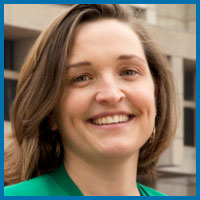 |
Katharine Lusk
Katharine Lusk is the executive director of the Initiative on Cities at Boston University. She was previously a policy advisor for Mayor Thomas M. Menino, former Mayor of Boston, where she spearheaded his work to make Boston the first city in the country to achieve pay equity for women. In addition to launching the Mayor’s Women’s Workforce Council, Lusk was the chief author of the Council’s report, “Boston: Closing the Wage Gap,” which outlined evidence-based interventions employers can take to close the gender wage gap. An enthusiastic civic entrepreneur, Lusk also led the launch of a new capital fund for child care providers, a networking platform for women small business owners, Women on Main, and the nation’s first mobile City Hall, City Hall to Go. |
 |
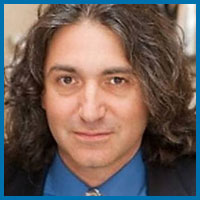 |
Paul P. Maglio
Paul P. Maglio is a Professor of Technology Management and Cognitive Science at the University of California, Merced, and a research staff member at IBM Research, Almaden. He holds a bachelor’s degree in computer science and engineering from MIT and a Ph.D. in cognitive science from the University of California, San Diego. One of the founders of the field of service science, Dr Maglio is the Editor-in-Chief of Service Science, serves on the editorial board of the Journal of Service Research, and was lead editor of the Handbook of Service Science. |
 |
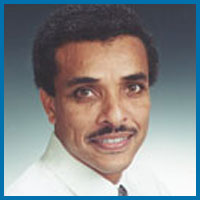 |
Imadeldin Mahgoub
Imadeldin Mahgoub is the Tecore Professor in the Department of Computer & Electrical Engineering and Computer Science at Florida Atlantic University. His research interests include mobile computing, wireless sensor networks, healthcare technologies, and parallel and distributed systems. Prof. Mahgoub received his PhD at Pennsylvania State University. |
 |
| |
Fran Marrone
Fran Marrone is the administrative assistant to Richard Larson, Mitsui Professor of Engineering Systems, and Daniel Hastings, director of the Singapore-MIT Alliance for Research and Technology (SMART). |
 |
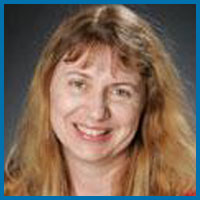 |
Maja Mataric
Maja Mataric is a professor and Chan Soon-Shiong Chair in computer science, neuroscience and pediatrics at the University of Southern California. She also serves as vice dean for research in the Viterbi School of Engineering. She is founding director of the Center for Robotics and Embedded Systems and co-director of Robotics Research Laboratories.
Her research is aimed at endowing robots with the ability to help people, especially those with special needs. Her goals are to gain novel insights into human behavior and cognition through human-machine interaction and to develop robotic systems capable of providing personalized assistance in convalescence, rehabilitation, skill training, and education. Her Interaction Lab focuses on socially assistive systems capable of aiding people through social interaction rather than through physicjavascript:;al contact; her group works with stroke patients, children with autism spectrum disorders, children at risk for obesity, individuals suffering from dementia/Alzheimer's Disease, elderly aging-in-place or in managed care, and healthy users across the age-span. Research involves developing human-machine interaction, methods for enabling technology-assisated diagnosis, assessment, intervention, and/or therapy. To address the inherently interdisciplinary challenges of this research, they draw on theories, models, and collaborations from neuroscience, cognitive science, social science, health sciences, and education. |
 |
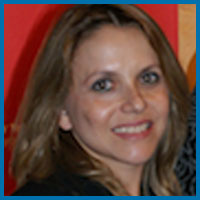 |
Alexandra Medina-Borja
Alexandra has concentrated her work in areas related to the effective design and analysis of service delivery systems. Her main research contribution has been to advance a model for the performance evaluation of nonprofit social services by adapting Data Envelopment Analysis formulations to account for the effects of the operating environment on units functioning under different market and geographical conditions. In 2002, the American Red Cross adapted Dr. Medina-Borja's framework to evaluate chapter operations nationwide, thus becoming one of the largest centralized nonprofit evaluation systems in the world. A paper relating this implementation based on her doctoral dissertation work was awarded the 2007 Goodeve Medal by the British Operational Research Society for the most significant contribution to the theory and practice of OR in the given year. In 2006, she founded the International Service Systems Engineering Research Lab in the Department of Industrial Engineering at the University of Puerto Rico at Mayaguez, where she is an associate professor. Through ISSER she has been able to secure substantial federal funding for her research, mainly from NSF and mainly to study the inclusion of exogenous factors and behavioral and cultural considerations in modeling and analysis of complex service systems. At UPRM she was awarded the College of Engineering Outstanding Faculty Award in 2007, 2008 and 2011.
In January 2012, Dr. Medina-Borja started a rotation at the National Science Foundation (NSF) in Arlington, VA where she was appointed as the first Director of Evaluation and Assessment for the Directorate for Engineering. She also holds an interim appointment as Head of the new Evaluation and Assessment Section in the Office of the NSF Director, and acts as Cognizant Program Officer in Smart Service Systems for the Directorate for Engineering.
Alexandra earned her Ph.D. and Master's Degrees in Industrial and Systems Engineering from Virginia Tech, and holds a Production Engineering Degree from the Federal University of São Carlos in São Paulo, Brazil. She serves in the editorial board of INFORM’s Service Science Journal, and in the board of the IIE’s Society for Engineering Management Systems. |
 |
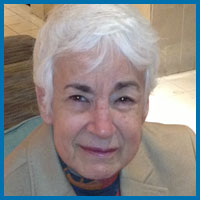 |
Sara B. Nerlove
Dr. Nerlove is Program Director for the Partnerships for Innovation: Building Innovation Capacity program in the Division of Industrial Innovation and Partnerships, which is in the Directorate for Engineering at the National Science Foundation. This program is highly interdisciplinary and cross-organizational, concerning itself with academe-industry partnerships many of which involve a diverse array of other organizations.
Dr. Nerlove holds a bachelor’s degree from Radcliffe College and Master’s and Ph.D. degrees from Stanford University, all in cultural anthropology. She has conducted approximately 3 years of anthropological fieldwork in southern Mexico, southwestern Kenya, Guatemala, northern Peru and Ithaca and Syracuse, New York. This research was related primarily to behavioral, cognitive, and developmental anthropology and social organization.
Dr. Nerlove has held teaching and research positions primarily in interdisciplinary contexts at the University of California at Irvine, Carnegie-Mellon University, and Cornell University and in the Anthopology Department at SUN Binghampton. She has served as a Research Scientist in Population and Development Policy at Battelle Memorial Institute and as a consultant to the Rand Corporation and to 21st Century, Inc. After coming to the National Science Foundation, she has served as a program officer in a number of different programs within the Directorate for Biological, Behavioral and Social Sciences and, subsequently, in the Directorate for Social, Behavioral, and Economic Sciences; in the Research Facilities Program in the Office of the Assistant Director; and in the SBIR/STTR Program in its several locations within the Foundation. She assumed her current position of Program Director in the Partnerships for Innovation Program in early 2006. |
 |
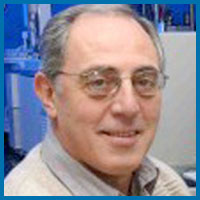 |
Basil Nikolau
Basil Nikolau is the Frances M. Craig Professor of Biochemistry at Iowa State University where he has taught and conducted research since 1988. He was awarded his PhD in biochemistry at Massey University, New Zealand, in 1982, and conducted postdoctoral research at the University of California, Davis, and the University of Utah before joining the faculty of Iowa State University. Prof. Nikolau’s research interests focus on the biochemistry and molecular biology of biotin and biotin-containing enzymes and the regulation of plant lipid metabolism.
Research in the Nikolau Group is focused on the comprehensive understanding of metabolism. The lab is particularly focused on the discovery and characterization of novel metabolic processes, and the associated biocatalysts, utilizing expanding genomics resources as the starting point for these endeavors. The past decade has seen an explosion of genomics datasets, which have revolutionized the way biological systems are defined. Yet the majority of the gene sequences that are deposited at databases are ambiguously annotated relative to biochemical functionality. These gaps in knowledge therefore offer opportunities for novel discoveries that can be used to generate innovative metabolic solutions to societally defined issues. These research activities are providing opportunities for research-based education and training of undergraduate and graduate students, as well as post-doctoral researchers. |
 |
| |
Naoaki Noguchi
Naoaki Noguchi is director of education innovation at Fujitsu. |
 |
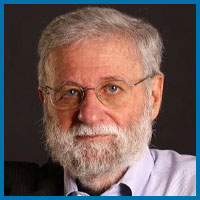 |
Don Norman
Don Norman is Director of the recently established Design Lab at the University of California, San Diego where he is also professor emeritus of both psychology and cognitive science. He has been a VP of Apple, executive at HP, and Design Prof. at Northwestern and KAIST (Korea). He is co-founder of the Nielsen Norman group, an IDEO Fellow, fellow of the Design Research Society, member of the National Academy of Engineering, trustee of IIT’s Institute of Design, and an honorary professor of design and innovation at Tongji University, Shanghai. He has two honorary degrees (Delft and Padua) and the lifetime achievement award in HCI from CHI. His books include Emotional Design, Living with Complexity, and most recently an expanded and revised edition of Design of Everyday Things. |
 |
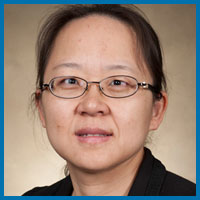 |
Zheng O'Neill
Zheng O’Neill is an Assistant Professor at the Department of Mechanical Engineering in The University of Alabama at Tuscaloosa where she has been since 2013. She was a Principal Investigator at United Technologies Research Center (UTRC), East Hartford, Connecticut, where she was responsible for the development and field-implement of smart building optimal controls, building performance monitoring, energy diagnostics and low energy/net zero energy buildings. Dr. O’Neill received her Ph.D. in Mechanical Engineering from the Building and Environmental Thermal Systems Research Group at Oklahoma State University in 2004, and is a registered Professional Engineer. She is an active member of ASHRAE (American Society of Heating, Refrigerating and Air Conditioning Engineers) and IBPSA (International Building Performance Simulation Association). |
 |
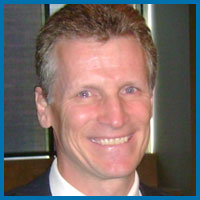 |
Michael Orosz
Michael Orosz is the principal investigator on the Los Angeles Department of Water and Power Smart Grid Regional Demonstration Project (SGRDP) at the University of Southern California Information Sciences Institute. He is also the co-PI on the SGRDP Customer Behavior (CB) project and the SGRDP Electric Vehicle (EV) project. Dr. Orosz is also the PI on the DoE-funded Building Level Energy Management Systems (BLEMS) project. His research interests focus on behavior-driven decision systems used in operational environments. Dr. Orosz has more than 28 years of experience successfully managing commercial product development and academic research projects. |
 |
 |
Anthony Papa
Anthony Papa, Ph.D. is an Associate Professor of Psychology at the University of Nevada Reno, and is currently the director of UNR’s Psychological Services Center, Associate Director of Clinical Training, and a core faculty member in the Interdisciplinary Social Psychology Program. He received a Ph.D. from Teachers College, Columbia University and completed his postdoctoral fellowship at the National Center for Post-Traumatic Stress Disorder in Boston. His work focused on emotional expression and regulation as risk and resilience factors in bereavement and psychological trauma and developing secondary and tertiary preventions for post-adversity pathology based on this work. This has included work in developing Internet-delivered and face-to-face interventions for prolonged grief, major depression, and posttraumatic stress after the experience of adverse life events. This work has also focused on examining resilience and risk factor for post event adjustment using advanced longitudinal data analysis techniques. He is a co-investigator on a HRSA-funded project on training psychologists to work in multidisciplinary medical settings, and a recently completed NIMH funded project to develop an early intervention for pathological grief responses in cancer caretakers. |
 |
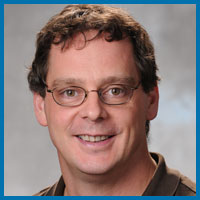 |
Chris Paredis
Dr. Chris Paredis is currently Program Director for the Engineering and Systems Design (ESD) and Systems Science (SYS) programs at the National Science Foundation. He is on leave from Georgia Tech where he remains active in research as Professor of Mechanical Engineering in the G.W. Woodruff School of Mechanical Engineering, and in the H.M. Stewart School of Industrial and Systems Engineering. He is a Woodruff Faculty Fellow and Director of the Model-Based System Engineering Center. He holds graduate degrees in Mechanical Engineering from the Catholic University of Leuven (Belgium) and in Electrical and Computer Engineering from Carnegie Mellon University.
Dr. Paredis' research focuses on Model-Based Systems Engineering, combining aspects of decision theory, information technology, simulation, and systems theory to support the design of complex mechatronic systems. In these areas, he has published more than 140 refereed book chapters, journal articles and conference papers. He has made significant contributions to the development of the theory, methods and tools for decision making in design and systems engineering, and has developed several decision support tools using the SysML and Modelica languages. In the Model-Based Systems Engineering Center, he contributes towards the development of a next generation of systems engineering methods that are value-driven, model-based and human-centered.
He is active within the Object Management Group (OMG), where he served on the SysML Revision Task Force and where he has led the development of the SysML-Modelica Transformation Specification. He was a founding board member of the North America Modelica Users' Group, and is a member of the Technical Advisory Board for Integrated Model-Centric Engineering Program at NASA/JPL. He is past Chair of the ASME Computers and Information in Engineering division and has served as Conference Chair for the 2013 Conference on Systems Engineering Research (CSER'13) and the 2007 Computers and Information in Engineering Conference (CIE'07).
Dr. Paredis has served as Associate Editor for the SAE Journal of Commercial Vehicles and the ASME Journal of Mechanical Design. He currently serves as co-Editor of the ASME book series, "Advances in Computers and Information in Engineering Research." He received the 2007 CETL/BP Junior Faculty Teaching Excellence Award, the 2007 SAE Ralph R. Teetor Educational Award, and the 2011 ASME CIE Excellence in Research Award. |
 |
 |
Jacqueline Paris
Jacqueline Paris is the communications assistant for the Sociotechnical Systems Research Center (SSRC). In her current role, she helps implement effective communications strategies to disseminate information about the center, its programs, research, faculty, staff, students, and activities. Jacqueline's duties also include event planning and execution and project assistance. Prior to joining MIT, she was an account coordinator at a public relations agency in the Boston area. |
 |
 |
Rathna Perera
Dr. Perera received his BS degree from University of Colombo, Sri Lanka and joined the Intitut National Polytechnique de Grenoble, France. He has pioneered many fluoride based glass systems that are applicable in both military and civilian markets. In 1984, he received his doctoral degree from INP Grenoble, France. Later, he joined a research group at Rensselaer Polytechnic Institute and received his Ph.D. degree in Materials Engineering in 1990.
Dr. Perera has been contributing to the scientific community for over 20 years. In 1990, He joined BGF/Porcher Industries in North Carolina as a Materials Research Engineer. At BGF industries, he has developed many processes and products that are useful in composite industries including aircraft and circuit board industries.
In late nineties, Rathna joined Burle Electro optics Corporation in Sturbridge and contributed to night vision and medical optical fiber manufacturing processes. Dr. Perera then accepted a Senior Scientist position at Intelcore Technologies in Boston and worked there developing advanced components for telecommunication industry.
In 2003, Dr. Perera joined EY Technologies in Fall River Massachusetts. He is currently working, as the director of Research and Development, at the forefront of developing cutting edge products and processes that are applicable in defense and advanced consumer products. |
 |
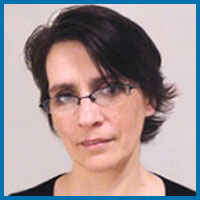 |
Adriana Petrova
Adriana Petrova is an associate professor in the College of Human Sciences at Oklahoma State University. Her research areas include fit of apparel; sizing of apparel; design, development, and testing of functional and protective apparel; and applications of 3D body scanning for design and evaluation. She received the 2010 ITAA Paper of Distinction Award in the Textile and Apparel Science track and the 2009 Lectra Innovation Award for Research. Prof. Petrova received her PhD and MA in apparel design from Cornell University, MA in physics from the University of Texas, and BS in physics from Sofia University, Bulgaria. |
 |
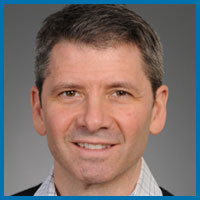 |
Tom Pincince
Tom Pincince serves as the chief executive officer and president of Digital Lumens Inc. Mr. Pincince is responsible for overall strategy and management of Digital Lumens. Prior to Digital Lumens Inc., Mr. Pincince served as chief executive officer and president of EXFO Service Assurance Inc. (formerly, Brix Networks Inc.). Prior to starting Brix Networks in July 1999, Mr. Pincince founded New Oak Communications. In 1998, New Oak was acquired by Bay Networks (now Nortel Networks) to create the Contivity Extranet Switch product family.
Previously, as an industry analyst, Mr. Pincince served as a director of Forrester Research's Network Strategy Service, where he focused on the commercial use of the internet, and defined the market for corporate intranets and the possibilities of private data services over the public internet. Mr. Pincince was one of the first high-tech analysts to subsequently leave an industry research and consulting firm to start his own company. Earlier in his career, he held various marketing and engineering positions at several Boston-area companies. He served as a director of EXFO Service Assurance Inc. Mr. Pincince was named a finalist for Ernst & Young's 2003 New England Entrepreneur of The Year Award. Additionally, he was named by the editors of the Boston Business Journal to that publication's Fifth Annual “40 Under 40“ list in 2002 as one of the region's 40 best and brightest business and civic leaders who are all less than 40-years-old. Mr. Pincince holds an ScB with honors from Brown University. |
 |
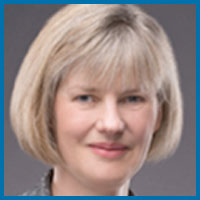 |
Anne Quaadgras
Anne Quaadgras is the research project manager for the Post-Traumatic Stress Innovations (PTSI) project in the Sociotechnical Systems Research Center (SSRC).
Anne earned her doctorate in information systems at Boston University, where her dissertation research explored how globally distributed groups of experts recognize and respond to operational problems. Prior to her doctoral work, Anne was a management consultant for fifteen years, specializing in improving decision making and investment processes in the chemical, pharmaceutical, and financial services industries. She holds a bachelor’s and master’s degree in chemical engineering from MIT. |
 |
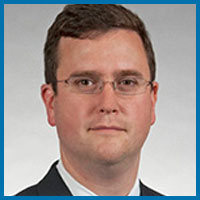 |
Marcus Quigley
Marcus Quigley, P.E., D.WRE, CPESC, is a principal civil and environmental engineer based in Massachusetts with more than 15 years of experience working on challenging projects related to surface water hydrology, hydraulics, water quality, and stormwater and erosion and sediment control permitting and management. He is recognized as a national technical leader in stormwater best management practice (BMP) design, research and development, modeling, data analysis, and field data acquisition.
Quigley has extensive experience in the execution and management of major compliance auditing and litigation support projects. He also is managing and directing major nationwide NPDES compliance audit programs for private clients. He has been the lead designer for a number of conventional and low impact development (LID) controls systems, and has directed groundbreaking monitoring work to demonstrate the effectiveness of LID.
Quigley regularly conducts and directs complex surface water quantity and quality modeling efforts. During the past 10 years he has provided technical leadership and project management for the International Stormwater Best Management Practices Database project. As part of that project, he was a co-author of “Urban Stormwater BMP Performance Monitoring – A Guidance Manual for Meeting the National Stormwater BMP Database Requirements” (April 2002), as well as the 2008 update to the manual that incorporates LID. As part of research teams, he has been a co-author of a number of BMP selection guidance manuals, including “Evaluation of Best Management Practices for Highway Runoff Control.” This manual evaluates the basic scientific and technical criteria that can be used for the quantitative assessment of wet-weather flow control alternatives for highways and other highway-related facilities. Quigley was the co-author of the 2008 New York State Stormwater Design Standard for Phosphorus Restricted Watersheds (Chapter 10).
Through internally and externally funded research and development efforts, Quigley helps bring to the marketplace fundamentally new approaches to surface and stormwater real-time control, combined storm water control/reuse systems, and consumptive use, demand-side feedback management using ambient information systems. |
 |
 |
Wesley S. Randall
Wesley S. Randall, Ph.D., is an associate professor of logistics at the University of North Texas, and the logistics doctoral program coordinator. He has degrees from the United States Air Force Academy, Marine Command and Staff College and the University of North Texas. Dr Randall is a recognized expert in the area complex system post production support, architecting for life cycle affordability and supply chain finance. Dr Randall is part of a group of scholars applying emerging economic models that shift from a firm-centric product focus emphasizing return on revenue to smart system, supply chain centric, strategies that emphasize the conversion of knowledge, skill, and ability into the delivery of evolving value propositions. In this model supply chain networks provide complementary core competencies and assets that create sustained competitive advantage by focusing on resource conservation and knowledge application through return on asset/investment value creation models. Prior to coming to UNT Dr Randall was a leading faculty member in the college of business at Auburn University. Dr Randall is a retired military officer with acquisition and operational experience. Dr Randall has continued to support the Department of Defense acting as the academic advisor on the Product Support Action Team, and project Proof Point—these efforts set the strategic tone for more than $90 Billion in DoD’s post-production spending. He was named a 2010 Rainmaker by DC Velocity, in 2011 he was named an Emerald Literati, in 2012 have received the College of Business Outstand Research Award. In the last few years Dr Randall has led funded industry and government funded research efforts in excess of $1 Million. Dr Randall teaching graduate level courses focusing on supply chain analytics and strategy. Dr Randall has dozens of articles in venues such as the Journal of Business Logistics, Journal of Supply Chain Management, European Journal of Operational Research, International Journal of Physical Distribution and Logistics Management, Journal of Transportation Management, Transportation Journal, Defense Acquisition Review, Aviation Week: Maintenance Repair and Overhaul, Benchmarking: An International Journal, The Journal of Knowledge Management, Collegiate Aviation Review, Distribution Business Management Journal, The Journal of Strategic Marketing, and The International Journal of Logistics Management. |
 |
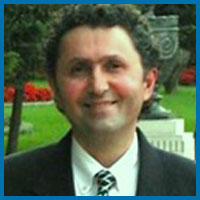 |
Sohi Rastegar
Sohi Rastegar is the director of the Office of Emerging Frontiers in Research and Innovation (EFRI) at the National Science Foundation (NSF), Directorate for Engineering. He joined NSF in a permanent position in November 2003 after over fifteen years of academic service at Texas A&M University, Virginia Commonwealth University, and the Johns Hopkins University, and invite professorship at the Swiss Institute of Technology, Lausanne. He has had over 100 scientific publications and presentations and is a co-founder of BioTex, Inc., a medical device company in Houston, Texas. During his service at NSF, Rastegar has directed projects and Centers in bioengineering and has worked on interdisciplinary trans-NSF and interagency activities.
Rastegar holds a BS with highest honors, an MS in aerospace engineering, and a PhD in biomedical engineering from the University of Texas. He has served as a faculty at Texas A&M University where he developed a nationally recognized research and academic program in biomedical lasers and optics. He is professionally active in several professional societies including American Society of Mechanical Engineers (ASME) where he is a member of the Bioengineering Executive Committee, the Optical Society of America (OSA), and the International Society for Optical Engineering (SPIE). He is a fellow of the American Society for Lasers in Medicine and Surgery. |
 |
| |
Don Ronning
Don Ronning is president of Lite Enterprises. Lite Enterprises develops advanced subsystems and products for the industrial and defense communities. A combination of optical, electrical, mechanical, image processing, and software development expertise has led to the development of a high throughput defect inspection system for the semiconductor industry. Recently a patented design breakthrough in animal deterrence has been developed. In 2002, Lite Enterprises received a grant from the National Science Foundation to study and further develop a bird/bat deterrent system. |
 |
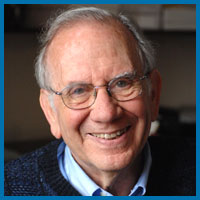 |
Daniel Roos
Daniel Roos, Japan Steel Industry Professor of Engineering Systems and Civil and Environmental Engineering, serves as director of the MIT Portugal Program, which is a five-year, $40 million initiative focusing on engineering systems. The program involves over 40 MIT faculty from all five schools at MIT.
Prof. Roos was the founding director of MIT’s Engineering Systems Division (ESD) from 1998–2004 and serves as Chair of the Engineering Systems University Council, an organization of universities with Engineering Systems programs.
He previously served as director of the MIT Center for Transportation Studies, and director of the MIT Center for Technology, Policy and Industrial Development (now the MIT Sociotechnical Systems Research Center). Prof. Roos also served as special assistant to the MIT chancellor and provost, helping to form large-scale industrial and global partnerships. He had a leadership role in partnerships with Ford, Merrill Lynch, and Cambridge University in the U.K.
Prof. Roos was founding director of the International Motor Vehicle Program (IMVP) and currently serves as chair of the IMVP advisory board. He is co-author of The Machine that Changed the World, which has been published in 11 languages and has sold over 600,000 copies. Prof. Roos received the Shingo Prize for Excellence in Manufacturing Research and the Frank M. Masters Transportation Engineering Award from the American Society of Civil Engineers "for his 25 year professional career in directing a series of highly innovative research projects of great relevance in the advancement of urban transportation.” |
 |
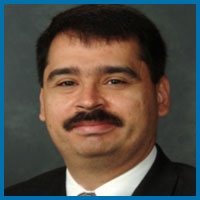 |
Manuel Rossetti
Dr. Manuel Rossetti, P.E. Dr. Rossetti has published over 85 journal and conference articles in the areas of simulation, logistics/inventory, and healthcare and has been the PI or Co-PI on funded research projects totaling over 4 million dollars. Dr. Rossetti is the Director for the NSF I/UCRC Center for Excellence in Logistics and Distribution (CELDi). He was selected as a Lilly Teaching Fellow in 1997/98 and was voted Best IE Teacher by IE students in 2007 & 2009. He won the IE Department Outstanding Teacher Award in 2001-02, 2007-08, and 2010-11. He received the College of Engineering Imhoff Teaching Award in 2012 and was elected an IIE Fellow. In 2013, the University of Arkansas Alumni Association awarded Dr. Rossetti the Charles and Nadine Baum Faculty Teaching Award, the highest award for teaching at the University of Arkansas. He serves as an Associate Editor for the International Journal of Modeling and Simulation and is active in IIE, INFORMS, and ASEE. He served as co-editor for the WSC 2004 and 2009 conferences, is the Publicity Chair for the WSC 2013 Conference, and will be the 2015 WSC Program Chair. He is also the author of the book, Simulation Modeling and Arena, published by John Wiley & Sons. |
 |
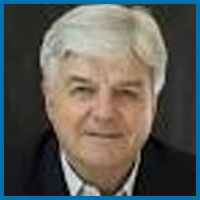 |
William Rouse
William Rouse is a faculty member at the Stevens Institute of Technology’s Center for Complex Systems & Enterprises.
Rouse has over thirty years of experience in research, education, management, marketing, and engineering related to individual and organizational performance, decision support systems, and information systems. In these areas, he has consulted with over one hundred large and small enterprises in the private, public, and non-profit sectors, where he has worked with several thousand executives and senior managers. His expertise includes individual and organizational decision making and problem solving, as well as design of organizations and information systems.
Rouse has written hundreds of articles and book chapters, and has authored many books, including most recently Essential Challenges of Strategic Management (Wiley, 2001) and the award-winning Don't Jump to Solutions (Jossey-Bass, 1998). He is co-editor of the best-selling Handbook of Systems Engineering and Management (Wiley, 1999) and edited the eight-volume series Human/Technology Interaction in Complex Systems (Elsevier). Among many advisory roles, he has served as Chair of the Committee on Human Factors of the National Research Council and as a member of the U.S. Air Force Scientific Advisory Board.
Rouse is a member of the National Academy of Engineering, as well as a fellow of four professional societies -- the Institute of Electrical and Electronics Engineers (IEEE), the International Council on Systems Engineering, the Institute for Operations Research and Management Science, and the Human Factors and Ergonomics Society. He has received the Joseph Wohl Outstanding Career Award and the Norbert Wiener Award from the IEEE Systems, Man, and Cybernetics Society; a Centennial Medal and a Third Millennium Medal from IEEE; and the O. Hugo Schuck Award from the American Automation Control Council. He is listed in Who's Who in America, Who's Who in Engineering, and other biographical literature, and has been featured in publications such as Manager's Edge, Vision, Book-Talk, The Futurist, Competitive Edge, Design News, Quality & Excellence, and IIE Solutions.
Rouse has served in a variety of leadership roles in several companies and on the faculty of the University of Illinois at Urbana-Champaign. He also has served in visiting positions on the faculties of Delft University of Technology in The Netherlands and Tufts University . He received his B.S. from the University of Rhode Island , and his S.M. and Ph.D. from the Massachusetts Institute of Technology. |
 |
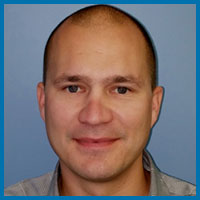 |
Matthew K. Runyon
Dr. Runyon is a currently a Principal Engineer for the Advanced Technologies Department within Durables R&D at Amway. He joined Amway in 2012 after spending 4 years at Arryx, Inc. A Haemonetics Company. While at Arryx, his research focused on the development of point-of-care diagnostics. Specifically, this work focused on the development of microfluidic devices that enabled rapid antibody screening in whole blood. At Amway, Dr. Runyon is focused on identifying and developing novel technologies that can be leveraged across the Amway family of brands. He received his PhD and MS degrees in chemistry from the University of Chicago and his BS degree in biochemistry from the University of Southern California. |
 |
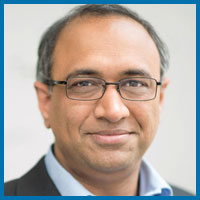 |
Sanjay Sarma
Sanjay Sarma is the Fred Fort Flowers and Daniel Fort Flowers Professor of Mechanical Engineering and MIT’s first director of digital learning.
Prof. Sarma is responsible for assessing how new models of online instruction might become integral parts of MIT students’ on-campus education, and for shaping a coherent vision for an educational model that blends the best of residential education with the best of online learning. He oversees MITx and MIT OpenCourseWare.
Prof. Sarma has been a member of the MIT's mechanical engineering faculty since 1996. His work in the classroom has earned him multiple MIT awards for excellence in teaching, including the Den Hertog Teaching Excellence Award, in 2001, and the Joseph H. Keenan Award for Innovation in Undergraduate Education, in 2002. He was named a MacVicar Fellow in 2008, an MIT honor reflecting outstanding undergraduate teaching, mentoring and educational innovation.
In addition to many teaching awards at MIT, Prof. Sarma has received industry recognition including the New England Business and Technology Award and the MIT Global Indus Award. In 2003, he was selected for Business Week's eBiz 25 and Fast Company magazine's Fast Fifty. He recently received the RFID Journal's Special Achievement Award. He serves on the Board of Governors for EPCglobal and the City of Boston's Complete Streets Advisory Group. |
 |
 |
Brian Scassellati
Brian Scassellati is a professor of computer science, cognitive science, and mechanical engineering at Yale University and director of the NSF Expedition on Socially Assistive Robotics. His research focuses on building embodied computational models of human social behavior, especially the developmental progression of early social skills. Using computational modeling and socially interactive robots, his research evaluates models of how infants acquire social skills and assists in the diagnosis and quantification of disorders of social development (such as autism). His other interests include humanoid robots, human-robot interaction, artificial intelligence, machine perception, and social learning.
Prof. Scassellati received his PhD in computer science from the Massachusetts Institute of Technology in 2001. His dissertation work (Foundations for a Theory of Mind for a Humanoid Robot) with Rodney Brooks used models drawn from developmental psychology to build a primitive system for allowing robots to understand people. His work at MIT focused mainly on two well-known humanoid robots named Cog and Kismet. He also holds a master of engineering in computer science and electrical engineering (1995), and bachelors degrees in computer science and electrical engineering (1995) and brain and cognitive science (1995), all from MIT.
Prof. Scassellati's research in social robotics and assistive robotics has been recognized within the robotics community, the cognitive science community, and the broader scientific community. He was named an Alfred P. Sloan Fellow in 2007 and received an NSF CAREER award in 2003. His work has been awarded five best-paper awards. He was the chairman of the IEEE Autonomous Mental Development Technical Committee from 2006 to 2007, the program chair of the IEEE International Conference on Development and Learning (ICDL) in both 2007 and 2008, and the program chair for the IEEE/ACM International Conference on Human-Robot Interaction (HRI) in 2009. |
 |
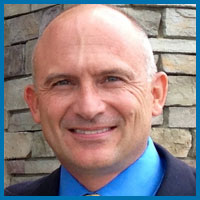 |
Dylan Schmorrow
Dr. Schmorrow is the Chief Scientist at Soar Technology (SoarTech) where he is leading the advancement of research and technology tracks to build intelligent systems for defense, government, and commercial applications that emulate human decision making in order to make people more prepared, more informed and more capable. He also serves as a Potomac Institute for Policy Studies Senior Fellow, an Editor of the Taylor and Francis Group’s Theoretical Issues in Ergonomics Journal, and the Scientific and Technical Advisor for the Applied Human Factors and Ergonomics Conference Series. He is one of the nation’s leading experts on national security research, technology, and policy related to information technology, medical research, and human performance applications. He has led numerous initiatives that transformed promising technologies into operational capabilities and he successfully transitioned several significant prototypes to operational use. He was a key architect of the DoD’s sociocultural behavior research and engineering strategy and helped define the role of autonomy in DoD systems while serving as the Executive Secretary for the DoD’s Defense Science Board Task Force. His past service includes the Deputy Director, Human Performance, Training, and BioSystems at the Office of the Secretary of Defense, Program Manager for the Defense Advanced Research Projects Agency (DARPA), Research Scientist and Branch Head at the Naval Air Warfare Center, Chief Scientist for Human-Technology Integration at the Naval Research Lab, Assistant Professor at the Naval Postgraduate School, Program Officer at the Office of Naval Research (ONR), and Executive Assistant to the Chief of Naval Research. He retired as a U.S. Navy Captain in 2013 after twenty years of service where he was both an aerospace experimental psychologist and an acquisition professional leading research and development programs. He holds a doctorate in Experimental Psychology from Western Michigan University and Masters Degrees in Psychology and Philosophy. He is also a Distinguished Alumni from the Naval Postgraduate School where he obtained Masters Degrees in Operations Research as well as Modeling, Virtual Reality and Simulation. He has authored over fifty scientific publications, lectured internationally in seventeen countries, edited over a dozen professional journals and books and has received alumni recognition from both his alma maters. He is a recipient of the Navy’s Top Scientists and Engineers Award, as well as both the Society of U.S. Naval Flight Surgeons’ Sonny Carter Memorial Award for his contributions to improve the health, safety and welfare of military operational forces and the Human Factors and Ergonomics Society’s Leland S. Kollmorgen Spirit of Innovation Award for his contributions to operational neuroscience that led to the founding of the field of Augmented Cognition. His military decorations include the Defense Superior Service Medal (2 awards), Legion of Merit, Meritorious Service Medal (3 awards), Navy Commendation Medal, Navy Achievement Medal, Armed Forces Service Medal, and NATO Medal. |
 |
 |
Justin Shi
Justin Shi is an associate professor in computer science, associate chairman and graduate chair of the Department of Computer and Information Sciences of Temple University. Since 1997, he has been the founder and chief science officer of Parallel Computers Technology Inc., an independent R&D company in Pennsylvania that has developed the first synchronous transaction replication system that does not subject to the CAP limitations. His research contributions included “synchronized distributed termination algorithm” for the LINK project led by Nobel Prize winner Professor Laurence Robert Klein in 1982, the inter-processor communication system for the Zodiac project of Digital Equipment Corporation in 1985, re-evaluation of Amdahl’s and Gustafson’s Laws in 1996 (collected by Wikipedia.com), and the discovery of statistic multiplexed computing architectures for compute intensive and data intensive applications in 2012 and 2013 respectively. The single most relevant discovery to the scalable computing community is his recent report on the inherent large scale application vulnerabilities brought by the “virtual circuit” concept in software tool designs (Supercomputing 2013, Denver, USA).
Dr. Shi has devoted more than two decades in scalable computing research and developments focusing on practical solutions for meeting the seemingly impossible scalable computing challenge: how to gain application performance and reliability at the same time, incrementally, as we upscale computer applications. In the process, he uncovered scalability inhibitors such as “virtual circuit”, synchronous and asynchronous data replication protocols, and the misleading scalability predictions by the lack of
communication measure in the Amdahl’s and Gustafson’s Laws. His passion in computer science education has led to curriculum innovations including the digital media, web, and mobile programming courses in collaboration with arts, communications, engineering, journalism, business, and government agencies. His service to the IEEE communities include contributions to multiple scalable computing related conferences and chairmanship of Sustainable HPC Cloud Computing workshops. His technical contributions are partially summarized in his recent 2012 book contribution: Fundamentals of Cloud Application Architecture: Cloud Computing Methodology, Systems, and Applications, published by CRC Press, Taylor and Francis Group. Under Dr. Shi’s leadership, a peer-to-peer file system is also underway for solving the ultimate scalability challenge of internet-sized stable storage. His passion for programming has also led 2013 Google API Developer Challenge Judges Choice Award for his growshare.net project solving Philadelphia’s vacant lot problems. |
 |
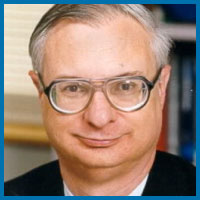 |
Daniel P. Siewiorek
Professor Daniel P. Siewiorek is the Buhl University Professor of Electrical and Computer Engineering and Computer Science at Carnegie Mellon University. He has designed or been involved with the design of nine multiprocessor systems and has been a key contributor to the dependability design of over two dozen commercial computing systems. Dr. Siewiorek leads an interdisciplinary team that has designed and constructed over 20 generations of mobile computing systems. He has written nine textbooks in addition to over 475 papers. He is Director of the Quality of Life Technology NSF Engineering Research Center and previously served as Department Head of the Human Computer Interaction Institute. He has been the recipient of the AAEE Terman Award, the IEEE/ACM Eckert-Mauchly Award, and the ACM SIGMOBILE Outstanding Contributions Award. He is a Fellow of IEEE, ACM, and AAAS and is a member of the National Academy of Engineering.
Professor Siewiorek received the B.S. degree in Electrical Engineering from the University of Michigan, and the M.S. and Ph.D. degrees in Electrical Engineering (minor in Computer Science) from Stanford University. |
 |
 |
Gurdip Singh
Dr. Gurdip Singh is a Program Director in the Division of Computer and Network Systems in the CISE Directorate at National Science Foundation. With the Division of Computer and Network Systems, he works with the Cyber-Physical Systems and Computer Systems Research program. He is also a Professor of Computing and Information Sciences (CIS) at Kansas State University. From 2009 and 2014, he was the Head of CIS Department at Kansas State University. His research interests include real-time embedded systems, sensor networks, network protocols and distributed computing. His research has been funded by NSF, ARO, DARPA and Lockheed Martin. He has been involved in developing software tools to design large-scale, distributed safety critical systems. He is working on developing methodologies and tools for building integrated sensor systems and analysis tools for automated optimization of distributed middleware. |
 |
 |
Mustafa Sir
Mustafa Sir is an associate consultant at the Mayo Clinic Robert D. and Patricia E. Kern Center for the Science of Health Care Delivery. Dr. Sir graduated with a PhD degree in industrial and operations engineering (IOE) with a focus on operations research from the University of Michigan in 2007. He also holds a bachelor of science and a master of science in engineering (MSE) degree in IOE and an MSE degree in electrical engineering –systems, all from the University of Michigan.
Dr. Sir’s research has focused on both deterministic and stochastic large-scale optimization problems arising in medicine (e.g., optimization of radiation therapy), healthcare delivery (e.g., streamlining patient flow in surgical services and nurse scheduling and assignment), and transportation and logistics (e.g., robust healthcare supply chain design and warehouse capacity management). His research has been funded by the National Science Foundation, Bayer CropScience Corporation, and Missouri Department of Transportation. |
 |
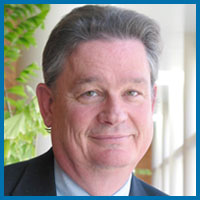 |
Dr. James ("Jim") C. Spohrer
Dr. James (“Jim”) C. Spohrer is Director IBM Global University Programs and leads IBM’s Cognitive Systems Institute. The Cognitive Systems Institute works to align cognitive systems researchers in academics, government, and industry globally to improve productivity and creativity of problem-solving professionals, transforming learning, discovery, and sustainable development. IBM University Programs works to align IBM and universities globally for innovation amplification and T-shaped skills. Jim co-founded IBM’s first Service Research group, ISSIP Service Science community, and was founding CTO of IBM’s Venture Capital Relations Group in Silicon Valley. He was awarded Apple Computers’ Distinguished Engineer Scientist and Technology title for his work on next generation learning platforms. Jim has a Yale PhD in Computer Science/Artificial Intelligence and MIT BS in Physics. His research priorities include service science, cognitive systems for smart holistic service systems, especially universities and cities. With over ninety publications and nine patents, he is also a PICMET Fellow and a winner of the S-D Logic award. |
 |
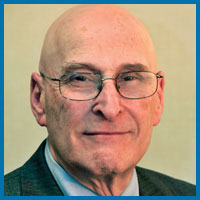 |
Joseph Sussman
Joseph Sussman is the JR East Professor in the Department of Civil and Environmental Engineering and the Engineering Systems Division (ESD) at MIT, where he has served as a faculty member for 47 years. He served as interim director of ESD for the 2011-2012 academic year.
Prof. Sussman’s initial research in the 1970s and 1980s in freight railroads focused on service reliability, rail operations, and maintenance. In 1991, he turned his attention to passenger rail, especially high-speed rail (HSR), and risk assessment. Further HSR work included comparative studies of HSR productivity in various international settings, systems studies using the CLIOS Process (Complex, Large-Scale, Interconnected, Open, Sociotechnical) of the Northeast Corridor in the U.S., economic growth, environmental tradeoffs in the deployment of HSR, urban implications of HSR deployment and planning for high levels of uncertainty inherent in HSR. He also worked extensively on Intelligent Transportation Systems (ITS) in the U.S. and abroad.
Prof. Sussman has worked on the application of computers to engineering problem solving and he contributed to the development of ICES (Integrated Civil Engineering System), among the most widely used computer systems in the engineering field. He has developed and taught undergraduate and graduate subjects in transportation, engineering systems, information systems, simulation methods, intelligent transportation systems, and technology and policy, and has written extensively on transportation education philosophy and program design.
Prof. Sussman is the author of Introduction to Transportation Systems, a graduate text (2000), and Perspectives on Intelligent Transportation Systems (ITS) (2005). Prof. Sussman has received numerous industry awards, including the Roy W. Crum Distinguished Service Award from TRB “for significant contributions to research” (2001), and the CUTC Award for Distinguished Contribution to University Transportation Education and Research from the Council of University Transportation Centers (2003). Additionally, Prof. Sussman has received many academic honors, including the Civil and Environmental Engineering Department’s Effective Teaching Award (1997), the Technology and Policy Student Society “Faculty Appreciation Award” (2002), and ESD’s Joseph A. Martore Excellence in Teaching Award (2009). |
 |
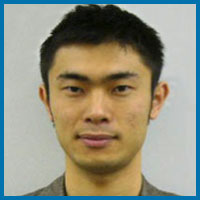 |
Tetsuro Takahashi
Tetsuro (Tetsu) Takahashi, Ph.D., is working at Fujitsu LTD. as a senior researcher. He has been developing text processing systems that analyze text and apply the results to marketing, risk mining, CRM, education, and so on. His research fields are natural language processing, knowledge discovery, and data/text mining.
His current research focuses on text analysis of educational resources in order to obtain structure of knowledge. |
 |
 |
John E. Taylor
John E. Taylor is currently a Dean’s Faculty Fellow and Associate Professor at Virginia Tech in the Charles E. Via, Jr. Department of Civil and Environmental Engineering. He received his PhD in 2006 from Stanford University on the topic of innovation in architecture, engineering and construction industry networks and his research continues to explore such dynamics. Prof. Taylor is Director of the Civil Engineering Network Dynamics Lab at Virginia Tech which, to date, has focused on industrial and societal dynamics associated with information system integration, industry globalization, workforce virtualization, energy conservation in buildings and human mobility during natural disasters.
Prof. Taylor’s research is funded by the National Science Foundation, the Department of Energy, the Earth Institute, the Alfred P. Sloan Foundation, the Construction Industry Institute, and other public and private funding sources. He is the recipient of a National Science Foundation CAREER Award and an Alfred P. Sloan Foundation Industry Studies Fellowship. His research has received best paper awards from the ASCE Journal of Management in Engineering, the ASCE Journal of Construction Engineering and Management, and the Project Management Journal. Prior to entering academia Prof. Taylor worked in industry as a project manager and was the founder of two technology startups serving the engineering and construction industry. |
 |
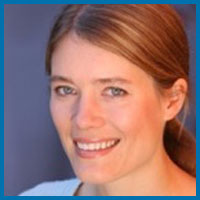 |
Jessika Trancik
Jessika Trancik is the Atlantic Ritchfield Career Development Assistant Professor in Energy Studies. Her research centers on evaluating the environmental impacts and costs of energy technologies, and setting design targets to help accelerate the development of these technologies in the laboratory. This work involves assembling and analyzing expansive datasets, and developing new quantitative models and theory. Projects focus on electricity and transportation, with an emphasis on solar energy conversion and storage technologies.
Prof. Trancik was a postdoctoral fellow at the Santa Fe Institute and a fellow at Columbia University’s Earth Institute. She earned a BS in materials science and engineering from Cornell University (1997), and a PhD in materials science from Oxford University (2002), where she studied as a Rhodes Scholar. She has also worked for the United Nations, and as an advisor to the private sector on investment in low-carbon energy technologies. She has published in journals such as the Proceedings of the National Academy of Sciences, Nano Letters, and Environmental Research Letters. |
 |
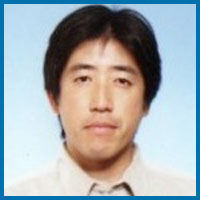 |
Kanji Uchino
Kanji Uchino is a senior researcher at Fujitsu Laboratories. Uchino serves as research manager for the Open Education Solutions Project. With a goal to realize Fujitsu’s vision of the “Human-Centric Intelligent Society,” putting people at the center in utilizing information and communication technology (ICT) for a better society, Open Education Solutions aims to establish new ways of learning by using ICT (in particular, the cloud) and to find the next pillar of business. Fujitsu can contribute to finding solutions for complex and challenging educational problems with ICT along with others working on this issue. With the knowledge gained through experience, the team's goal is to build a new educational platform by making full use of innovative technology, cloud computing, security, advanced language processing, and artificial intelligence.
In addressing educational problems, it is imperative to examine them from a social science point of view besides ICT. Fujitsu has been collaborating with Prof. Richard Larson of MIT to understand the motivation of learning and personalized learning path. The team is also conducting a collaborative project with Professor Ken Goldberg of UC Berkeley on social media and primary-secondary learning using opinion space.
Fujitsu focuses on competency-based learning, a type of learning where educational competencies are acquired and assessed. Currently, the project involves conducting research on STEM education and lifelong education. As these areas are taught with a certain structure, the knowledge previously obtained is essential for the learner to proceed to the next stage. |
 |
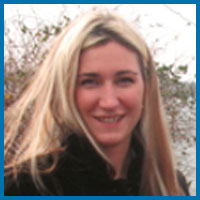 |
Eliza Van Reen
Eliza Van Reen is an assistant professor in the Department of Psychiatry and Human Behavior. She received her doctorate in experimental psychology from Brown University in 2007 and did her postdoctoral training at Harvard Medical School and the Brigham and Women's Hospital in the Division of Sleep Medicine. Her research focuses on sleep and circadian rhythms in young humans. |
 |
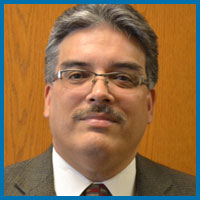 |
Miguel Vélez-Reyes
Dr. Miguel Vélez-Reyes is the George W. Edwards/El Paso Electric Distinguished Professor in Engineering and Chair of the Electrical and Computer Engineering Department at the University of Texas at El Paso (UTEP). He also directs the Regional Cyber and Energy Security Center (RCES) at UTEP. He received the BSEE. degree from the University of Puerto Rico at Mayagüez, in 1985, and the MS and PhD degrees from the Massachusetts Institute of Technology in 1988, and 1992, respectively. He was a member of the faculty at the University of Puerto Rico at Mayaguez (UPRM) from 1992 to 2012. He has held faculty internship positions with the Air Force Research Laboratories, and the NASA Goddard Space Flight Center. His research interests are in information extraction from dynamic systems using minimally intrusive (or nonintrusive) monitoring, and signal and image processing algorithms for remote sensing. He has over 160 publications in journals and conference proceedings and has contributed to three books. He was the Founding Director of the UPRM Institute for Research in Integrative Systems and Engineering and was Associate Director of the NSF Center for Subsurface Sensing and Imaging Systems a NSF Engineering Research Center led by Northeastern University. He was director for the UPRM Tropical Center for Earth and Space Studies, a NASA University Research Center. In 1997, Dr. Vélez-Reyes was one of 60 recipients from across the United States and its territories of the Presidential Early Career Award for Scientists and Engineers (PECASE) from the White House. In 2005, Dr. Vélez-Reyes was inducted in the Academy of Arts and Sciences of Puerto Rico. In 2009, Dr. Velez-Reyes was elected Fellow of SPIE for his contributions to hyperspectral remote sensing. He is a senior member of the IEEE where he has held many posts such as president of the IEEE Western Puerto Rico Section, and Latin America representative to the IEEE PELS AdCom. He is a member of the Tau Beta Pi, Sigma Xi, and Phi Kappa Phi honor societies. He is also member of ASEE, SHPE, SACNAS, and AGU. |
 |
 |
Nalini Venkatasubramanian
Nalini Venkatasubramanian is currently a Professor in the School of Information and Computer Science at the University of California Irvine. She has had significant research and industry experience in the areas of distributed systems, adaptive middleware, pervasive and mobile computing, cyberphysical systems, distributed multimedia and formal methods and has over 200 publications in these areas. As a key member of the Center for Emergency Response Technologies at UC Irvine, Nalini's recent research has focused on enabling resilient, sustainable and scalable observation and analysis of situational information from multimodal input sources; dynamic adaptation of the underlying systems to enable information flow under massive failures and the dissemination of rich notifications to members of the public at large. She is the recipient of the prestigious NSF Career Award, multiple Undergraduate Teaching Excellence Awards and best paper awards. Prof. Venkatasubramanian has served in numerous program and organizing committees of conferences on middleware, distributed systems and multimedia and on the editorial boards of journals. She received and M.S and Ph.D in Computer Science from the University of Illinois in Urbana-Champaign. Her research is supported both by government and industrial sources such as NSF, DHS, ONR, DARPA, Novell, Hewlett-Packard and Nokia. Prior to arriving at UC Irvine, Nalini was a Research Staff Member at the Hewlett-Packard Laboratories in Palo Alto, California. |
 |
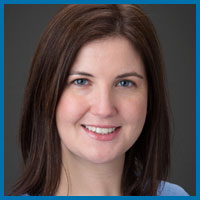 |
Bridget Wadzuk – 2014 NSF Grantee
Bridget Wadzuk is an Associate Professor in the Department of Civil and Environmental Engineering at Villanova University and works with the Villanova Urban Stormwater Partnership. She has conducted research on topics that include implementation, analysis and modeling of stormwater control measures hydraulics and water quality. Recently, she has focused on the role of evapotranspiration in different stormwater control measures and how to optimize stormwater control measure function. Dr. Wadzuk received her PhD in Civil Engineering from The University of Texas at Austin.
Self-Learning Algorithms for Advancement of Smart Stormwater Green Infrastructure Systems
Bridget Wadzuk (Principal Investigator)
A pressing social and environmental issue on a national scale is the effect of stormwater on waterbody impairment, particularly in urban and suburban watersheds. For example, stormwater can diminish water quality by discharging pollutants like metals and nutrients as it runs over land and into the streams. Stormwater causes stream erosion, sedimentation, flooding and overflows in combined sewer systems. To combat these issues, municipalities must adopt innovative technologies, such as Green Infrastructure (GI) systems like bioretention, constructed wetlands, and vegetated roofs. Despite the advantages of GI systems, its adoption has been slow due to technological and human factors. This research will develop "smart" (i.e., efficient, active and self-learning) stormwater service systems. "Smart" systems use sensor- and human-generated data to streamline GI maintenance programs to be less costly and more effective in performance, prediction, and failure prevention. |
 |
 |
Grace Wang
Grace Wang was named Deputy Assistant Director for Engineering at the National Science Foundation in July 2014. Prior to that, Grace was the Division Director of the Division of Industrial Innovation and Partnerships (IIP) at NSF since February of 2012. Grace joined NSF in June 2009 as a Program Director for the SBIR/STTR Program. She also served as the Cluster Leader for the Nanotechnology, Advanced Materials and Manufacturing (NM) Cluster in SBIR/STTR Program. Before joining NSF, Grace was a Senior Development Scientist at Hitachi, where she led a team to successfully develop and launch a few generations of products into the market. While in Hitachi, Grace also led task forces both in the US and overseas that identified and executed effective and viable solutions to major technical crises, and helped mitigate impact on revenue generation. Grace started her career as an Advisory Development Scientist at IBM. Grace is the recipient of many leadership and technical achievement awards. Grace holds a Ph.D. in Materials Science and Engineering from Northwestern University. |
 |
 |
Rick Wedgeworth
Rick Wedgeworth is a principal enterprise architect and data scientist at Early Warning Services, LLC, a provider fraud prevention and risk management services to help fight fraud in the financial system. Early Warning facilitates the secure exchange of information and knowledge between organizations for the sole purpose of preventing fraud and offers solutions for responding quickly to evolving fraud challenges. |
 |
 |
Matthew Wilson
Matthew Wilson is a Director at Future Skies, Inc. where his responsibilities include business development, commercialization of technologies and management of multiple teams. Mr. Wilson has a diverse background in biology, social services and technology engineering, contributing to a multi-disciplinary approach to robotics design and development.
Mr. Wilson is a life-long New Jersey native who has recently relocated to Maryland. He has over 15 years of management experience in the private, non-profit and federal contracting arenas; former employers include the New Jersey Marine Science Consortium and Collier Services. |
 |
 |
David D. Woods
David D. Woods, PhD, is Professor in the Department of Integrated Systems Engineering at the Ohio State University and leads the university wide initiative on Complexity in Natural, Social, and Engineered Systems. A pioneer in Cognitive Systems Engineering for human-computer decision making in emergencies since 1980. He was one of the pioneers on how to make systems resilient to improve safety since 2000. He helped build the patient safety movement in health care, first with Anesthesia in the early 1990's, as one of the founding board members of the National Patient Safety Foundation (1996-2000) and as Associate Director of the Midwest Center for Inquiry on Patient Safety of the Veterans Health Administration (2000-2002). Dr. Woods has served on many National Academy of Science and other advisory committees, most recently on the Defense Science Board Task Force on Autonomy (2012) and on the National Research Council Committee on Autonomy in Civil Aviation (2014). Dr. Woods is Past-President of the Resilience Engineering Association (2011-2013) and of the Human Factors and Ergonomic Society (1999). |
 |
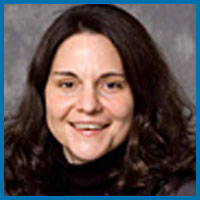 |
Heather Woodward-Hagg
Heather Woodward-Hagg, PhD, is currently the Acting National Veterans Health Administration (VHA) Veterans Engineering Resource Center (VERC) National Program Director and the Director of the VA Center for Applied Systems Engineering (VA-CASE). Dr. Woodward-Hagg is also the Chief of the Systems Redesign Service at the Roudebush VA Medical Center in Indianapolis, IN. Prior to joining VA, Dr. Woodward-Hagg was an Assistant Professor of Industrial Engineering Technology at the Purdue School of Engineering and Technology - Indianapolis. Within that role - Dr. Woodward-Hagg directed a statewide collaborative of Purdue School of Engineering and Technology faculty partnering with Indiana hospital and healthcare providers in translation and application of quality engineering methodologies. She holds BS degrees in Ceramic Engineering and Mechanical Engineering from University of Missouri-Rolla, a MS degree in Materials Science and Engineering and a PhD in Manufacturing Engineering (Health Systems emphasis) from Worcester Polytechnic Institute. |
 |
 |
Yao-Jan Wu
Yao-Jan Wu is currently an assistant professor of the Department of Civil Engineering and Engineering Mechanics, University of Arizona (UA). Before joining UA, he was an assistant professor at Saint Louis University and a postdoctoral research associate with the Center for Transportation Studies at the University of Virginia. Currently, he serves as Transportation Research Board (TRB) University Representative, and an official Young Member of both the Highway Traffic Monitoring Committee (ABJ35) and the Urban Transportation Data and Information Systems Committee (ABJ30).
Prof. Wu has published more than 20 peer-reviewed journal papers and more than 15 peer-reviewed conference papers. He has presented his research findings more than 20 times at national and international conferences and at invited speaker events. Prof. Wu’s research interests highlight a strong connection between information technology (IT) and traditional transportation research. His research broadly covers four major fields: 1) traffic safety (e.g., accident modeling and analysis and advanced safety vehicles), 2) intelligent transportation systems (e.g., development of advanced traffic detection technology, loop data quality control, and computer vision applications), 3) large-scale network analyses (e.g., online data management and analysis systems and traveler behavior analysis), and 4) sustainable transportation systems (e.g., climate change impact analysis). |
 |
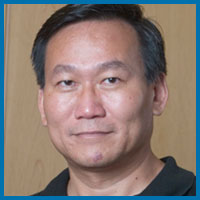 |
Jingming Xu – 2014 NSF Grantee
Jingming Xu is the Charles C. Tillinghast Jr. '32 University Professor of Engineering and Physics. Prior to coming to Brown University in 1999, he was the former Nortel Chair in Emerging Technologies and James Ham Chair in Optoelectronics, and the Director of Nortel Institute of Telecommunications at the University of Toronto. Prof. Xu is a fellow of AAAS, APS, Guggenheim, IEEE, and InstP (UK). His interests include nanoscale science and technology, quantum electronics and photonics, aperiodic optics, semiconductor lasers, electro-optics, and collective behaviors of large coupled systems.
A Wireless Networked Biophilic Lighting System for the Delivery of Lighting for Enhancing Secondary School Student Performance
Jimmy Xu (Principal Investigator)
Adequate sleep is crucial for students to maintain the best possible performance in the classroom. However, a natural biological tendency among teenagers to stay up later in the evening combined with early morning start times at most schools can result in a lack of sleep among middle and high school students that can impact their classroom performance. Research has shown that various properties of indoor lighting can influence the human cycle of sleep and wakefulness, known as circadian rhythm. This project from Brown University aims to better understand those light properties and design a dynamic, intelligent lighting system that can effectively shift the circadian phase of students to help them remain alert and focused during the school day. |
 |
 |
Mark Yim – 2014 NSF Grantee
Mark Yim is a professor of mechanical engineering and applied mechanics (MEAM). His research interests began with modular robots that are made up of identical active components that can be arranged to form many different configurations, ranging from a snake robot to a humanoid to a 17-legged centipede. These systems can also self-reconfigure, changing the robot's shape to suit the task. In addition to self-reconfiguring and self-assembling robots, Mark also works on flying robots and task specification, working to figure out how to specify a task so that a robot configuration can optimally satisfy that task.
Affordable and Mobile Assistive Robots for Elderly Care
Mark Yim (Principal Investigator)
This project develops and tests the use of service robots to monitor and improve health of the elderly. The growing elderly population coupled with low birth rates in the developed world is creating a crisis in healthcare. The number of senior citizens is outgrowing the number of working-age adults to care for them. In the U.S. alone, the number of seniors over age 65 is projected to double from year 2000 to 2030, reaching 71.5 million. With the scarcity of care options available, affordable robots are a welcome solution for assisting elders with small tasks that would normally be done by a caregiver. While helping elders with activities of daily living in an elder care facility, the system learns about them. It can then do things such as help ensure that they are eating or drinking healthily. |
 |
 |
Cheng Yu
Dr. Cheng Yu, Associate Professor and Program Coordinator, is a faculty member of the Construction Engineering Technology program at University of North Texas. He earned both his Ph.D., and M.S. in Civil Engineering from Johns Hopkins University and received his B.E. in Civil Engineering from Tsinghua University, China in 1998. Dr. Yu' research interests include structural behaviors of light framed steel buildings subjected to multi-hazards, structural design of cold-formed steel structures, earthquake engineering and structural control, innovative construction materials and structures, and Building Information Modeling, His current projects are focused on developing high-performance light steel structural systems for low- and mid-rise buildings. Dr. Yu serves on several technical committees in American Society of Civil Engineers, American Iron and Steel Institute, and Structural Stability Research Council. He is a recipient of 2010 Faculty Early Career Development Award from National Science Foundation. |
 |
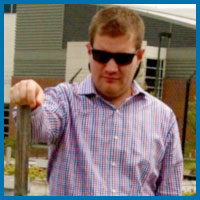 |
Gerald Zaremba
Gerald Zaremba is a graduate research assistant for the Villanova Urban Stormwater Partnership (VUSP) at Villanova University in Pennsylvania. His current research focuses on quantifying and modeling evapotranspiration from green roofs in an effort to optimize their design for stormwater runoff reduction. He received his B.S. degree in civil engineering from the Lafayette College in 2013 where he was president of the student chapter of ASCE as well as an active member of many other student groups on campus. |
 |
| |
|
> top |
|
| |
|
|

© 2014 MIT Sociotechnical Systems Research Center | Contact us at: ssrcinfo@mit.edu |